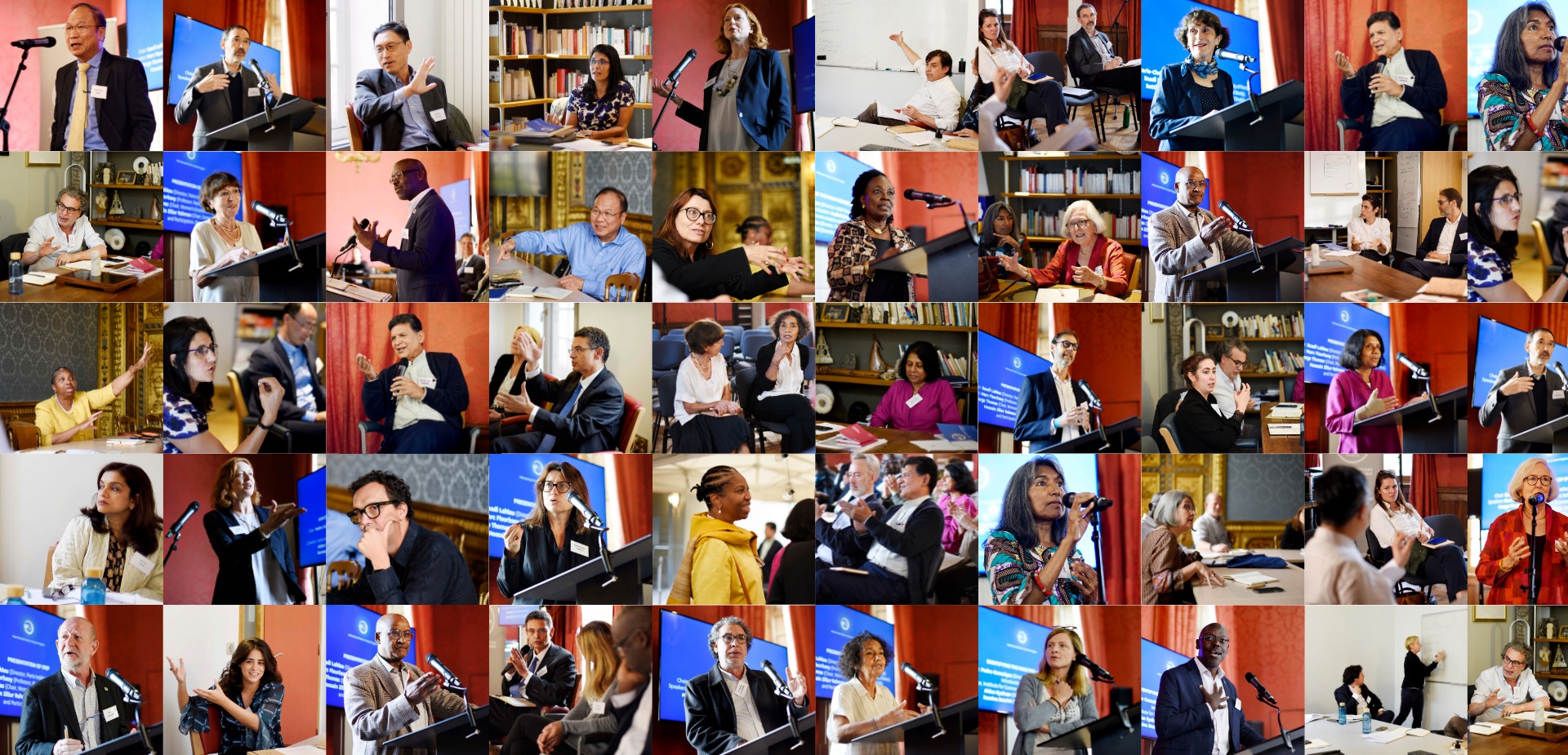The Advisory Board is composed of 70+ high-level/high-impact personalities with relevant competence and experience: international scholars, civil society organizations actors, social innovators, business leaders, (former) policymakers, philanthropists, etc. It meets once a year to discuss thematic proposals and projects, to determine priority activities, and to identify potential team leaders for the approved activities (reports, briefs, events). Along with the 11 members of the Coordination Council, the Advisory Board members are:
Chairs of the Advisory Board
Ravi Kanbur
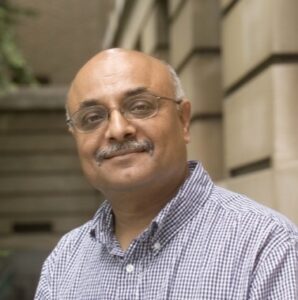
Professor of economics and world affairs, Cornell University
Ravi Kanbur has served on the senior staff of the World Bank including as chief economist for Africa. He is co-chair of the Food Systems Economics Commission. The positions he has held include: chair of the board of United Nations University-World Institute for Development Economics Research, member of the OECD High Level Expert Group on the Measu-rement of Economic Performance, president of the Human Development and Capability Association, president of the Society for the Study of Economic Inequality, member of the High Level Advisory Council of the Climate Justice Dialogue, and member of the Core Group of the Commission on Global Poverty. He is ranked in the top 0.5% of academic economists in the world.
He was co-chair of the scientific council of the International Panel on Social Progress and has been a member of the IPSP Coordination Council since January 2023.
Elisa Reis
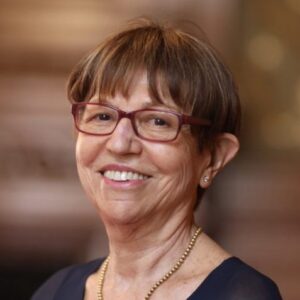
Professor of political sociology, Federal University of Rio de Janeiro
Elisa Reis chairs an interdisciplinary lab on social Inequalities at the Federal University of Rio de Janeiro. She is member of the Brazilian Academy of Sciences, and of The World Academy of Sciences (TWAS), and a Fellow of the International Science Council (after three years as Vice-President of the Governing Board 2018-2021). She has received scholarships from the Brazilian National Research Council, the Fulbright Commission, the Italian Consiglio Nazionale delle Ricerche, among others, and has a long list of publications in Brazilian and foreign periodicals. She has taught as visiting professor at the University of California at San Diego, Columbia University, the MIT, and the Ludwig Maximilians Universität, Munich. She was secretary of the Brazilian Sociological Society and pres-ident of the National Association for the Social Sciences.
She was a member of the IPSP Steering Committee and has been a member of the IPSP Coordination Council since January 2023.
Coordination Council
Merike Blofield
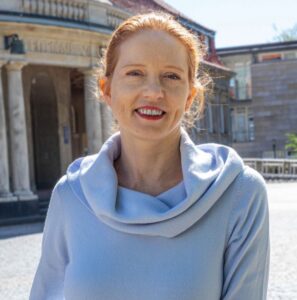
Professor of political science, University of Hamburg
With a focus on global health and social policy, Merike Blofield’s research addresses the conditions under which governments produce more equity-enhancing policies. Her collaborative work has recently been published by Cambridge University Press (Social Protections during Times of Crisis), Oxford University Press (co-editor of the Latin America section of the Oxford Handbook of Governance and Public Management of Social Policy), The Lancet, and UNICEF. She has received awards for both research and institution-building. She is currently working on public opinion toward social protections in Latin America, the social determinants of reproductive health among vulnerable groups at the Colombia-Venezuela border, and policy efforts on domestic and gender-based violence. She directed gender and Sexuality Studies at the University of Miami and the GIGA Institute for Latin American Studies (2020-2023).
She was a leading co-author in IPSP on the pluralization of families. She has been a member of the IPSP Coordination Council since January 2023.
Olivier Bouin
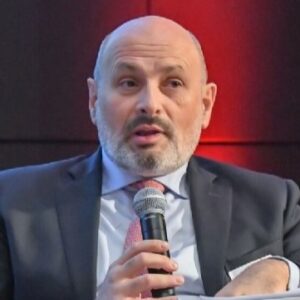
Head of the French Network of the Institutes for Advanced Study
As head of a leading French scientific research foundation, Olivier Bouin has been leading European and international collaborations: the Network of European Institutes for Advanced Study (NETIAS) and the global network of University-based Insti-tutes for Advanced Study (UBIAS). He was a founding member of the European Alliance for Social Sciences and Humanities for which he served as a member of the Board (2015-2018) and then as the chair (2018-2021). He co-founded and has been co-chairing the World Pandemic Research Network since 2020. He was the executive director of the European Institute for Chinese Studies from 2019 to 2022. He was consultant/administrator for the OECD Development Centre.
Since 2014, he has been a co-founder and lead coordinator of the International Panel on Social Progress. He was a co-editor of the first IPSP report “Rethinking Societies for the 21st century” and of the “Manifesto for Social Progress: Ideas for a Better Society”.
Pedro Conceiçao
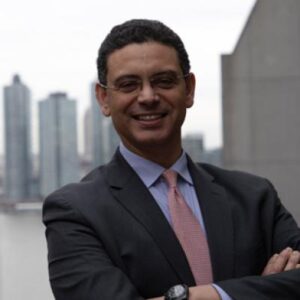
Director, Human Development Report Office, United Nations Development Programme
Prior to his current position (2019-), Pedro Conceiçao was director for strategic policy at the Bureau for Policy and Programme Support of UNDP, where he co-led the UN’s participation in the G20 Finance and Central Bank Governors Meetings, managed UNDP’s engaged in the Financing for Development processes, and contributed to articulate UNDP’s support to the implementation of the 2030 Agenda and the Sustainable Development Goals (2014-2019). He was chief-economist and head of the Strategic Advisory Unit at the Regional Bureau for Africa (2009-2014).Prior to this, he was deputy director then director of the Office of Development Studies (2001-2007). His work on financing for development and on global public goods was published by Oxford University Press in books he co-edited (The New Public Finance: Responding to Global Challenges, 2006; Providing Global Public Goods: Managing Globalization, 2003). He has published on inequality, the economics of innovation and technological change, and development.
Marc Fleurbaey
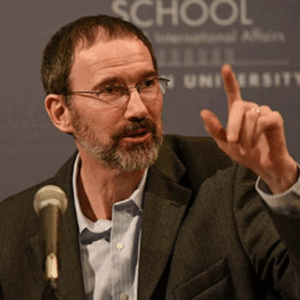
Senior researcher, CNRS Professor, Paris School of Economics
Marc Fleurbaey was, up to 2020, Robert E. Kuenne Professor at Princeton University. He is the author of Beyond GDP (with Didier Blanchet, Oxford University Press, 2013), A Theory of Fairness and Social Welfare (with François Maniquet, Cambridge University Press, 2011), and Fairness, Responsibility and Welfare (Oxford Univer-sity Press, 2008). He is a former editor of Social Choice and Welfare and Economics and Philosophy and is currently an associate editor of Free & Equal. He is a lead author of the Manifesto for Social Progress (Cambridge University Press, 2018). He was a coordinating lead author for the Intergovernmental Panel on Climate Change Fifth Report, a member of the United Nations Committee for Development Policy (2016-2021), and he has co-chaired task forces of the T20. He has been one of the initiators of the International Panel on Social Progress in 2014 and member of the IPSP Coordination Council since January 2023.
Hossain Zillur Rahman
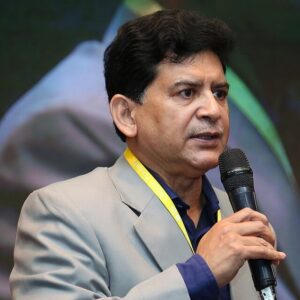
Founder-chairman, Power and Participation Research Centre
Since its inception in 1996, the Dhaka-based think-tank Power and Participation Research Centre has been at the forefront of research and policy advocacy on poverty, social protection, land, inclusive growth, governance, local governance, political development, basic education and sustainable urbanization. Its founder Hossain Rahman was a leading researcher at the Bangladesh Institute of Development Studies. He was a member of the Independent South Asian Commission on Poverty Alleviation (2003-2006) and served on the board of the Central Bank of Bangladesh. He was appointed advisor (cabinet minister) in charge of the ministries of Commerce and Education in the Caretaker Government of Bangladesh (2007-2008) and was credited with a lead role in the return of Bangladesh to electoral democracy. He was elected chairperson of BRAC, one of the world’s largest NGO, in 2019.
He has been a member of the IPSP Coordination Council since January 2023.
Marie-Laure Salles
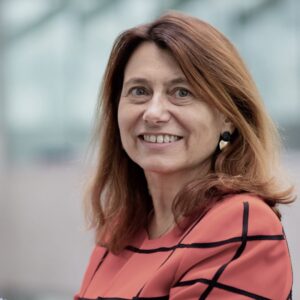
Director, Geneva Graduate Institute of International and Development Studies
Before joining the Geneva Graduate Institute in 2020, Marie-Laure Salles was founding dean of the School of Management and Innovation at SciencesPo Paris, a School she launched in 2016, and professor (Professeur des Universités) at the Centre de Sociologie des Organisations (CSO), SciencesPo Paris. Her research interests include the role of social networks in the transnational diffusion of rules, practices and ideas, the historical transformation of capitalism and national institutions, as well as the dynamics of transnational governance. She has worked in particular on the reciprocal interactions between business and society, with a particular interest for the evolving nature of the social responsibility of firms and the structural inscription of a sustainability and justice agenda in economic and social policy at the national and international level.
She was a member of the Steering Committee of IPSP and has been a member of the IPSP Coordination Council since January 2023.
Dennis Snower

President, Global Solutions Initiative
Dennis Snower is a professorial fellow at the Institute for New Economic Thinking, Oxford University; non-resident fellow at Brookings. Previously he was president of the Kiel Institute for the World Economy. He is an expert on labor economics, socio-economics, public policy and inflation-unemployment tradeoffs. He is currently working on a new paradigm for economics. He is the author of a major report on digital governance with reform. He has published extensively on employment policy, the design of welfare systems, monetary and fiscal policy, and the role of psychological motivation systems in economic decision making. He has been a visiting professor at many top universities around the world and has advised a variety of international organizations and national governments on macroeconomic policy, employment policy and welfare state policy.
He was a member of the Scientific Council of the first IPSP and has been a member of the Coordination Council since January 2023.
Margo Thomas
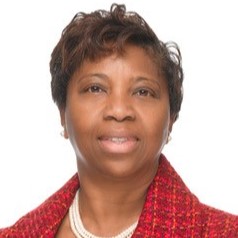
President and CEO, Women’s Economic Imperative
Margo Thomas is a thought leader for inclusive economic growth, gender equality, social justice, and social cohesion and supports initiatives increasing opportunities for the economic empowerment of disadvantaged and underrepresented groups globally. She has strong international expertise in private sector development, investment promotion, trade and competitiveness, and women’s economic empowerment. She has a long experience in the World Bank Group where she provided policy advice to some 50 developing, transitioning, and post-conflict governments. She led the independent secretariat of Ban Ki Moon’s High-Level Panel on Women’s Economic Empowerment. She is active in the Think20 Engagement Group of the G20 and previously as co-chair of the T20 taskforce on Women’s Economic Equity (2018); of the T20 taskforce on SDGs (2019); as a member of the COVID-19 Response Taskforce and of the T7 and T20 Social Cohesion Task Forces.
She has been a member of the IPSP Coordination Council since January 2023.
Ingrid Volkmer
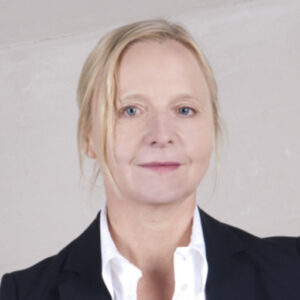
Professor of digital communication and globalization, University of Melbourne
Ingrid Volkmer’ expertise focusses on globalized communica-tion and the implications on societies. Amongst her numerous publications in this area is Transnational Public Spheres and Global Policy (Oxford Handbook of Global Policy and Transnational Administration, 2019) and The Global Public Sphere – Public Communication in the Age of Reflective Interdependence (Polity, 2014). She collaborates closely with various United Nations organizations. She led a multi-country study on COVID 19 and Social Mediafor the World Health Organisation (2020), she collaborates with the UNESCO and was involved with the OECD in areas of digital policy debates, specifically in contexts of Artificial Intelligence policy. She held visiting positions at Harvard’s Kennedy School, the London School of Economics, and the University of Amsterdam.
She was a lead author on information technology in the first IPSP and has been a member of the IPSP Coordination Council since January 2023.
Members of the Advisory Board
Dr. Yemisi Akinbobola

Associate Professor Birmingham City University
Co-founder, African Women in Media
Dr Yemisi Akinbobola is an Associate Professor and Research Degrees Coordinator at Birmingham City University and a global authority on gender and media in Africa. She is co-founder of African Women in Media (AWiM), where her research and enterprise have shaped policy and empowered thousands. Her work has led to landmark initiatives like the Kigali Declaration on the Elimination of Gender Violence in and through Media in Africa. She has served on various international committees, including the committee that drafted the Lusaka Declaration on Press Freedom in Africa and the UNESCO-led expert panel that reviewed Chapter J of the Beijing Declaration at Beijing+30. Dr Akinbobola is at the forefront of international efforts to transform media through feminist praxis.
Jari Ala-Ruona

CEO, Aion Sigma Co-chair, Oxygen2050
A seasoned serial entrepreneur, Jari Ala-Ruona co-chairs Oxygen 2050, a community of transformative entrepreneurs and investors dedicated to a brighter world. His journey exemplifies the relationship between personal growth and business, showcasing entrepreneurship as a way of being in the world. He pioneers digital financial inclusion in Africa, fostering global connections. Involved in the first IPSP cycle, he serves as a catalyst for positive change, dedicated to championing a future that is equitable and sustainable.
Nadi Albino PhD
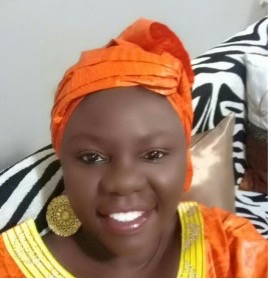
Dr. Nadi Albino is a transformative leader in global development with over 25 years of executive experience driving systemic change across challenging international contexts. As former Deputy Director for UNICEF’s Generation Unlimited, she orchestrated complex multinational initiatives requiring exceptional partnership cultivation with heads of state, C-suite executives, and global philanthropists. This role showcased her remarkable ability to mobilize significant resources and align diverse stakeholders around ambitious developmental objectives.
As UNICEF Representative in Lesotho until March 2019, Dr. Albino effectively served as country chief executive, managing substantial budgets and complex stakeholder relationships while reimagining organizational strategy. Her diplomatic engagement at ministerial and parliamentary levels yielded substantive policy reforms despite resource constraints, demonstrating her sophisticated approach to high-level advocacy and institutional positioning.
More
Dr. Albino has established herself as a masterful fundraiser with strategic partnership capabilities that bridge public-private divides. Her resource mobilization strategy combines compelling narrative development with rigorous impact frameworks, consistently yielding significant financial commitments from diverse funding sources. Her extensive global network spans government, corporate, multilateral, and philanthropic sectors, creating robust platforms for collaborative problem-solving and resource leveraging.
With profound insights into development challenges across African, Asian and the Americas contexts, Dr. Albino brings nuanced cultural understanding to complex situations. She has pioneered gender transformative initiatives and delivered high-impact interventions in some of the world’s most challenging operational environments, including fragile states and humanitarian emergencies. Her transformational leadership style emphasizes empowerment, accountability, and innovation, inspiring diverse stakeholders around shared objectives.
Dr. Albino’s intellectual foundation rests on exceptional academic credentials, including a Doctor of Education from the University of Fort Hare and specialized training from prestigious global institutions in Education and Change Management (University of Sussex), Policy Development (University of Maastricht), Education Sector Reform (World Bank Institute), Business Administration (Gordon Institute of Business Science), and Conflict Management (University of Birmingham).
As a change management specialist, Dr. Albino combines strategic vision with practical implementation, ensuring theoretical frameworks translate to measurable improvements in human wellbeing. Her unique blend of creativity, critical thinking, and exceptional communication capabilities enables her to navigate complex institutional dynamics with remarkable effectiveness. These attributes, coupled with sophisticated political acumen, have driven significant positive change throughout her professional journey.
Dr. Albino represents the epitome of executive leadership in global development. Her exceptional combination of strategic vision, partnership cultivation expertise, and resource mobilization capabilities positions her as an invaluable asset to organizations seeking transformative impact while building institutional capacity and stakeholder alignment.
Haifa Al Kaylani, OBE
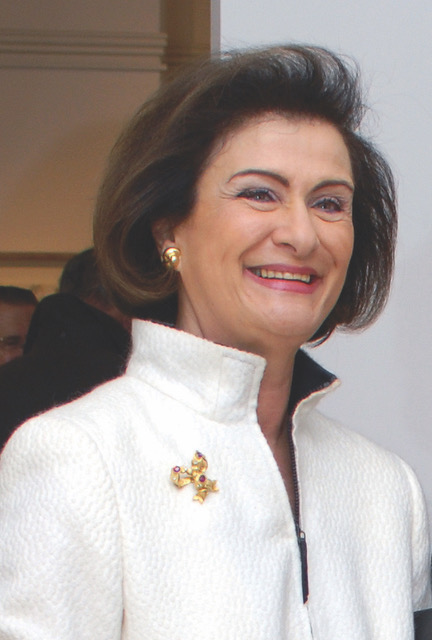
President & Founder, The Arab International Women’s Forum Fellow, Harvard Advanced Leadership Initiative Fellow 2017
Commissioner, ILO Global Commission on the Future of Work 2017-2019
Haifa Fahoum Al Kaylani OBE is President & Founder of the Arab International Women’s Forum, and is recognised in Arab and international government, private sector and NGO circles as an impactful change agent and sought-after thought leader and speaker at major international high-level public forums, conferences, and bilateral initiatives. She is globally renowned for her deep knowledge of and commitment to women’s leadership and youth empowerment, diversity and inclusion, sustainability, food and water security, education and the Future of Work, and for working for progress, inclusion, peace, and prosperity in the Arab region and internationally.
More
Haifa founded the Arab International Women’s Forum in London in 2001 as a development organisation committed to supporting women’s leadership in social and economic growth in the MENA region and internationally and creating equality of opportunity for all. Haifa served as the Chair of AIWF for 20 years and under her leadership, AIWF has become one of the world’s most respected development organisations for the economic empowerment of women and young people, working at the highest levels with a global network of corporate, institutional and global advocacy partners to advance momentum for women’s leadership in all sectors and spheres. She was appointed an Officer of the Most Excellent Order of the British Empire (OBE) in King Charles’ New Year 2024 Honours List in recognition of her services to Women, Young People and to Cultural Relations between the UK and the countries of the Middle East and North Africa (MENA) region. Haifa is a development economist, an alumna of the American University of Beirut. She read for a Diploma in Economic Development at Oxford University before working as an economist for the United Nations. She has lived all over the world, including in India and Tunisia supporting her late husband HE Wajih Al Kaylani who was Ambassador of the Hashemite Kingdom of Jordan, during which time she became acutely attuned to global development challenges and the need for greater cohesion between the Global North and South to address critical social and economic inequalities. In January 2017, Haifa Al Kaylani became a Fellow of the Advanced Leadership Initiative at Harvard University as one of 46 global leaders selected for an intensive, multi-disciplinary program and yearlong Fellowship to research and address significant social problems, undertaking the Fellowship through 2017 to carry forward on a global level the mission to which she has devoted over three decades of her life – the empowerment and advancement of Arab women and youth through job creation, entrepreneurship, education, and economic empowerment, in the MENA region and internationally. With a broad knowledge and decades of acquired knowledge related to social sustainability, climate and agriculture, a key outcome of her Fellowship has been a sustainable agriculture project currently being piloted in Jordan for which Haifa has secured World Bank funding. In her leadership of AIWF, she has also been instrumental in AIWF’s global advocacy on climate change and its impacts on women and communities in the MENA region.
In 2023 Haifa has been invited to serve as Global Council Member of the World Agricultural Forum. From its international base in London, under the sound leadership of Haifa Al Kaylani and through her wide high-level contacts in the Arab region and internationally, the Arab International Women’s Forum has nurtured deep-rooted ties with the MENA region, working at the heart of the Arab world and globally to bring women and young people in the UK and the MENA region together as international counterparts for experience exchange, new business development, and cross-cultural collaboration. Haifa has extensive experience of engaging with various stakeholders at all levels and from diverse backgrounds to forge impactful partnerships, garner support, and foster collaboration. She is a firm believer in the power of partnership with a long track record of successful funding outreach and exemplary relationship management and development, with an unparalleled network of global influencers and change agents in the diplomatic, development and business communities. She was the only Arab Commissioner to serve on the International Labour Organization’s Global Commission on the Future of Work (2017-2019). As an ILO Commissioner, Haifa contributed to the flagship report of the ILO published in January 2019, Work for a brighter future, which articulated the ILO framework for mitigating future of work challenges. Haifa also served in 2012 on The Commission on Global Security, Justice & Governance chaired by former US Secretary of State Madeleine Albright. She was also the first Honorary Member of the Euro Mediterranean Association for Cooperation and Development (2012). She is a Board Member of the Arab British Chamber of Commerce in London, which works to advance trade relations and cultural cohesion between the Arab world and the United Kingdom and for which Haifa has worked tirelessly to promote trade between the MENA region and the UK. She has served as a Livery Member of the Worshipful Company of World Traders for many years and has been admitted to the Freedom of the City of London. Haifa brings a wide range of skills and experience to her personal mission of encouraging greater cultural understanding and sustainable economic growth and reform, supporting a strong role for women and young leaders at the heart of that process. To this end, Haifa holds senior roles in several cultural, educational, non- governmental UK, MENA and international organisations Haifa is a Member of The Stimson East West Council on Track II Diplomacy, a Global Advisory Committee Member of QS – Quacquraelli Symonds , a member of the Harvard Advanced Leadership Initiative Director’s Advisory Council and a longstanding Harvard Women’s Leadership Board (WLB) Member for 20 years and a member of the WLB
Executive Committee. In 2023, Haifa was appointed to the Board of Medurable, a Paris- based non-profit of Water Champions committed to advocating for peace and sustainable development. Haifa is also an Advisory Board Member of the Global Thinkers Forum, a former Director of the East-West Institute in New York, former Advisory Board Member of the Imperial College Business School, and also served as an Advisory Board Member of the London Middle East Institute at the SOAS University of London. The many awards and honours that Haifa has received during her voluntary service career speak to the high regard in which she is held in the international development community, by successive governments in the United Kingdom and the Arab world, and by the many constituents that AIWF serves in the MENA region and globally. These rewards also recognise the significance of the contributions that she has made over the years and continues to make to advance women and young people in the UK and in the Arab World. She remains an eloquent and compelling champion for the empowerment and economic inclusion of women and young people in the MENA region and globally, ensuring in all her work that women’s voices are heard, their contributions are recognised, and their priorities addressed in order to foster economic growth in the Mena region leading to prosperity for all.
Marta Arretche
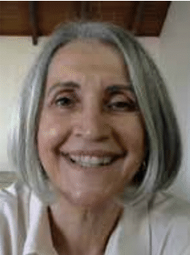
Professor of political science, University of São Paulo
Full professor at the Department of Political Science of the University of São Paulo, Marta Arretche served as director of the Center for Metropolitan Studies (2009-2020), as the editor-in-chief of the Brazilian Political Science Review (2013-2019) and as vice-provost for research at the University of São Paulo (2016-2018). She was a postdoctoral fellow at the Massachusetts Institute of Technology (USA) and a visiting fellow at the European University Institute in Florence. Her field of interest is comparative and institutional analysis. Her areas of research focus on inequality, federalism, and social policies.
Gustaf Arrhenius
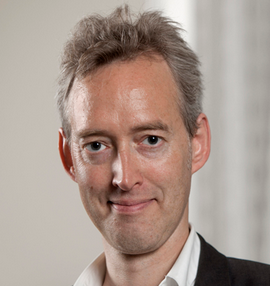
Director, Institute for Futures Studies
Professor of practical philosophy, Gustaf Arrhenius is interested in issues in the intersection between moral and political philosophy and the medical and social sciences (e.g. economics, law, and political science). He is best known for his research on our moral and political obligations to future generations and on issues in democratic theory. He is an honorary professor at Aarhus Univer-sity,a member of the Economics–Philosophy initiative at Paris School of Economics and a member of Academia Europaea. He was a member of the first IPSP Steering Committee.
Tuba Bircan

Professor | Head of AIMS Lab | Director of BRISPO
Vrije Universiteit Brussel
Dr. Tuba Bircan is Professor of Sociology and Director of the Brussels Research Institute for Social and Population Studies (BRISPO) at Vrije Universiteit Brussel, where she also leads the AI, Migration & Society (AIMS) Lab.
Her career spans academic, policy, and applied research domains, with extensive experience at the intersection of migration, inequality, big data, and social policy. She has served as principal investigator and coordinator in numerous international projects, including Horizon Europe and ERC initiatives, and has advised and collaborated with organizations such as UNHCR, UNICEF, IOM, WFP and the European Commission.
More
Her current work focuses on integrating artificial intelligence and computational methods with social science to address pressing issues of climate change, migration, disinformation, and social cohesion. These projects connect directly to human security, public health, and population wellbeing by generating innovative evidence for policymaking, enhancing resilience of vulnerable groups, and ensuring that technological and policy advances contribute to more just and inclusive societies.
Bircan’s commitment to societal impact, translating research into actionable knowledge for decision-makers and communities, resonates strongly with the IPSP’s mission to link human security with health, dignity, and social progress.
Adelle Blackett
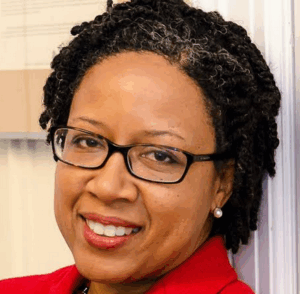
Professor of law, McGill University
Canada Research Chair in Transnational Labor Law, Adelle Blackett is an award-winning author and educator whose work focuses on rethinking core labor law narratives from pluralist, decolonial perspectives. She has been actively involved in labor law reform initiatives in Canada (she currently chairs Canada’s Employment Equity Act Review Task Force, whose report should be released in fall 2023) and internationally, notably with the ILO as lead expert on the Domestic Workers Convention and on labor law reform in Haïti, as well as current member of the ILO’s Trade and Labour Advisory Committee. She is an elected fellow of the Royal Society of Canada.
Romina Boarini
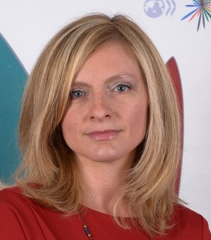
Director, Centre on Well-Being, Inclusion, Sustainability and Equal Opportunity, OECD
Previously a senior advisor to the OECD Secretary-General and the Head of the Inclusive Growth Initiative, where she developed the OECD Framework for Action on Inclusive Growth and launched Business for Inclusive Growth, Romina Boarini heads the WISE. Before joining the Office of the Secretary-General, Romina Boarini worked for the Statistics Directorate and was responsible for OECD Better Life Initia-tive. Currently, she promotes the OECD’s position as a leading international institution and contributes to strengthening OECD research and advice on the ‘Beyond GDP Agenda’. Before joining the OECD in 2005, she was a postdoctoral fellow in sustainable development (chaire EDF-École Poly-technique) and worked as a consultant to the French Ministry of Social Affairs.
Cecil Boston

Dean of the College of Medical Sciences, University of Guyana
Dr. Cecil Boston is a distinguished academic and leader in the field of medical sciences, formerly serving as Dean of the College of Medical Sciences at the University of Guyana. With an extensive academic and research background, he continues to contribute significantly to health sciences and higher education. He holds a Bachelor of Science in Medical Laboratory Sciences and a Diploma in Education from the University
of Guyana, as well as three master’s degrees in Environmental Management (Climate Change and Disaster Risk Management), Occupational and Environmental Health and Safety, and Biochemistry and Physiology, earned through studies at the University of Guyana, the University of the West Indies, and the University of Central Lancashire.
More
Dr. Boston’s PhD research examined the use of herbal medicine in managing diabetes mellitus in Guyana, with a case study in Pakuri (St. Cuthbert’s Mission) exploring the intersection between indigenous knowledge and conventional medicine. He has
published articles on diabetes management, environmental and public health, and laboratory science. His expertise has also been sought by organizations including the World Bank, and the World Health Organization, where he has contributed to health and environmental policy development. Dr. Boston remains a leading voice in advancing research, health policy, and sustainable development.
Gustavo Cardoso

Professor of communication sciences, ISCTE-IUL
Member of Centre for Sociological Studies (CIES) at the University Institute in Lisbon and associate researcher at Centre d’analyse et d’interventions sociologiques (CADIS) in Paris, Gustavo Cardoso was a visiting professor at IN3 in Barcelona and a member of the Innovation Lab of the Annen-berg School of Communication at the University of Southern California. He works in the field of communication and information studies. He is coordinator of the MediaLab-ISCTE and the European Journalism Observatory. He was a consultant at the Civil House of the President of the Republic Jorge Sampaio (2006-2016).
As lead author on communication for IPSP, he organized the first IPSP final authors’ meeting in Lisbon in 2017.
Lars-Erik Cederman
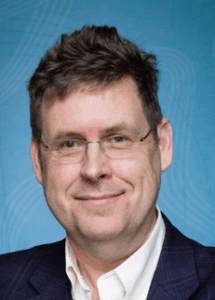
Professor of international conflict research, ETH Zürich
Lars-Erik Cederman’s main research interests include nationalism, state formation and conflict processes. Since 2003, he has been collecting evidence on ethnic groups and their participation in conflict processes. This immense data collection undertaking culminated in the widely used Ethnic Power Relations Dataset Family. New information and indicators are made accessible in a user-friendly manner via the GROWup – Geographical Research On War, Unified Plat-form. In 2018, he was also awarded a European Research Council advanced grant for a project on nationalist state transformation and conflict
Helen Chidza Chilisa
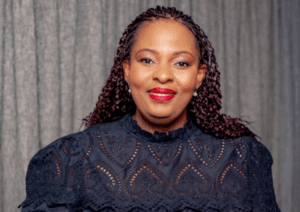
Corporate Strategist
A transformative leader and accomplished executive, Helen Chilisa is a seasoned advocate for change, blending extensive experience in public sector governance, corporate leadership, and nonprofit management across Canada and Botswana. As a
strategist and innovator, Helen excels in navigating complexities, driving impactful initiatives, and fostering collaborations that deliver measurable results. Her expertise spans policy development, entrepreneurship, education reform, and health equity, all underpinned by a passion for women’s empowerment and community engagement. Helen’s ability to lead high-profile initiatives and implement sustainable
solutions has consistently driven success in diverse organizational contexts.
Martha Chen
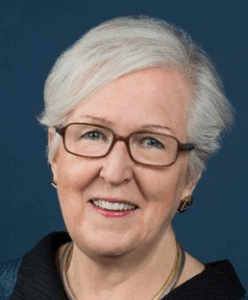
Lecturer in urban planning and design, Harvard Graduate School of Design, Co-founder WIEGO
Martha Chen is a co-founder and board member of the global network Women in Informal Employ-ment: Globalizing and Organizing (WIEGO). Her areas of specialization are employment, poverty and gender with a focus on the working poor in the informal economy. Before joining Harvard in 1987, she had two decades of resident work experience in Bangladesh with BRAC and in India with Oxfam America. She was awarded a high civilian award, the Padma Shri, by the Government of India in April 2011, and a Friends of Bangladesh Liberation War award by the Government of Bangladesh in December 2012.
Gerald Chirinda
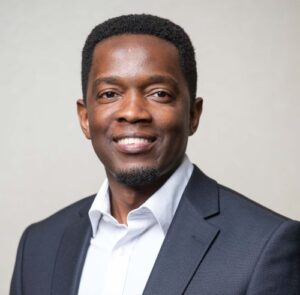
Founder and CEO of Future Africa Group & Future Africa Forum
Gerald Chirinda is the Founder and CEO of Future Africa Group which houses Future Africa Forum— a platform for thought leadership that partners with organizations to build a better Africa, and Future Africa Consulting— an Africa-focused and based management consulting firm.
He has co-founded Educate, an education access and improvement company that partners with schools to provide financial access through the issuing of loans within the education ecosystem; and Youth Combating NTDs, a global community of young people who are fighting to end Neglected Tropical Diseases.
More
Gerald has served on the Now Generation Network sub-committee of the Ibrahim Index Advisory Council for the Mo Ibrahim Foundation which works to assess the effectiveness of the Ibrahim Index for African Governance (IIAG). He has also held several leadership roles, including being a BMW Foundation Responsible Leader, a Young Leader at the French-African Foundation, an alumnus of the Global Shapers Community, and a member of the Advisory Board for the Queen’s Commonwealth Trust.
Gerald Chirinda holds a MSc in Innovation, Leadership, and Management from the University of York.
Anabel Cruz
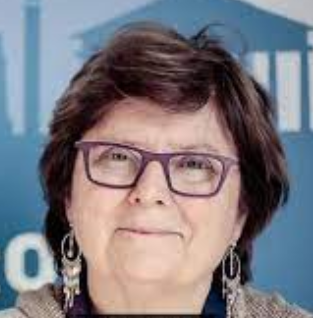
Founder director, Institute for Communication and Development, Coordinator of Rendir Cuentas
Expert on topics related to citizen participation, civil society transparency, accountability, and good governance, Anabel Cruz has a long working experience with local, national, regional, and global civil society organization networks. She has been the chair of the board of CIVICUS in two different periods, and led the creation in 2009 of Rendir Cuentas, a Regional Civil Society Accountability Initiative in Latin America and the Caribbean. She is currently the civil society co-chair (2022-) of the Open Government Partnership (OGP). She founded the Institute for Communication and Develop-ment in Montevideo in 1989.
Annemiek Cuppen
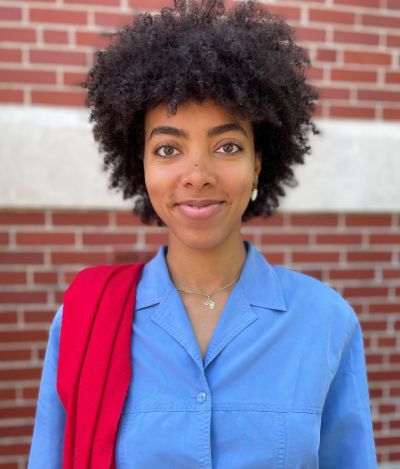
Researcher. Resourcefulness Project, Pathways to Sustainability
Utrecht University
Annemiek Cuppen is an early-career researcher with a background in Sustainable Development, specializing in energy and materials. Over the past year, she has worked with Utrecht University on a project examining the financial sector’s role in the extraction of cobalt from the DRC for the energy transition and its implications for the justness of Europe’s energy transition. Her ongoing work explores the intersections of justice, the energy transition, and colonial history. She strives to contribute to decolonizing sustainable development, decolonizing knowledge and helping build systems that are just, resilient, and truly sustainable.
Leila Dagher
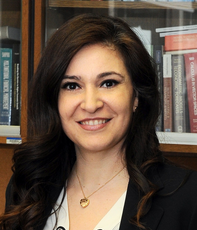
Associate Professor of Economics, Adnan Kassar School of Business, Lebanese American University
Leila Dagher is a Senior Fellow at the Lebanese Center for Policy Studies, a Research Fellow at the Economic Research Forum, and sits on the steering committee of the Mashreq Gender Facility.Her research applies to the areas of energy, environmental, and financial economics. She has been a visiting fellow at the Harvard’s Kennedy School of Government. Leila Dagher previously served as Economic Adviser to several public officials including a former Prime Minister. At LAU, she is tasked with setting up the new Center for Policy Analysis, an advanced think tank rallying internal and external experts
Purnamita Dasgupta
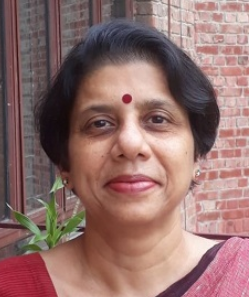
Chair-professorof environmental economics, Institute of Economic Growth at Delhi
Purnamita Dasgupta’s research applies economics to real world contexts, is interdisciplinary and routinely involves stakeholder engagements and field studies. She has taught environmental economics in India and at Johns Hopkins University. She has been a Coordinating lead author for the Intergovernmental Panel on Climate Change (IPCC), for the International Panel on Social Progress and is currently, for the Nexus Assessment of the IPBES. She has researched for India’s National Determined Contributions, on implementation and evaluation of adaptation and mitigation interventions in South Asia, and city-level biodiversity action plans.
Mathieu Denis
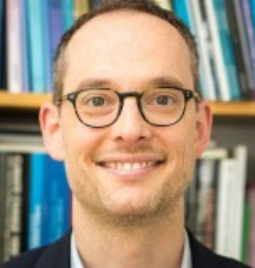
Head, Centre for Science Futures, International Science Council
Before becoming head of the Centre for Science Futures, Mathieu Denis was science director at the creation of the International Science Council (2018-2022) and served as acting CEO of the ISC throughout 2022. He had originally joined the International Social Science Council in 2012 and became its executive director in 2015. In that position he helped guide and oversee the merger with the International Council for Science (ICSU), and the creation of the ISC. Mathieu Denis holds a PhD from the Humboldt University in Berlin, Germany. He has previously taught history, political theory, and industrial relations at Université de Montréal.
Fatima Denton

Director, United Nations University Institute for Natural Resources in Africa
Fatima Denton is a senior leader in the UN system with depth of expertise in natural resource management in the African region. Prior to joining UNU-INRA in 2018, she worked with the United Nations Economic Commission for Africa in Ethiopia (2012-2018). Before that, she worked with the Canada-based International Development Research Centre (IDRC). She is a lead author for the Intergovernmental Panel on Climate Change (IPCC). She has served on the inde-pendent scientific committee of the Climate Change and Food Security Programme, and is a current member of the advisory board of Future Earth.
Gala Diaz-Langou
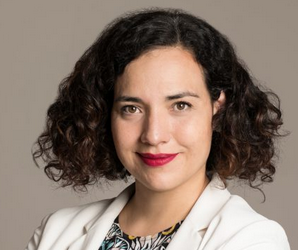
Executive Director, CIPPEC
Professor of public policy at the Torcuato di Tella University, Gala Diaz Langou has been working with CIPPEC in Buenos Aires since 2006 where she led the Social Protection team (2016-2021). She has also worked as an international consultant for several United Nations agencies and other international organizations and governments of the Latin American Region. Her work is focused on doing applied research on gender and children’s rights. She was selected as one of the 500 most influential people in Latin America and she was invited to the Group of 100 Women Leaders. She is a Delegate to W20 representing Argentina.
Gerald Emmanuel Arhin
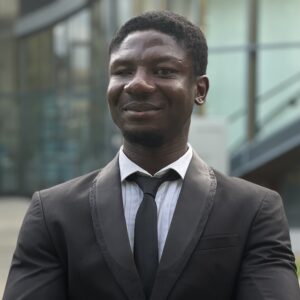
Dr. Gerald Emmanuel Arhin is a Research Fellow at University College London specialising in the political economy of climate-compatible development and critical minerals governance. His research interrogates power dynamics, equity considerations, and policy frameworks shaping just and sustainable energy transitions across diverse socio-political contexts.
Gerald completed his PhD in Development Policy and Management at the University of Manchester in 2024, examining the politics of natural resource governance. He holds an MPhil in African Studies from the University of Cambridge.
As Co-coordinator of the Extractivism Working Group at the International Panel on Social Progress, Gerald leads initiatives on extractive governance, including developing working papers, policy briefs, and a critical mineral atlas. He also leads the disability inclusion activities on the Climate Compatible Growth project, championing inclusive approaches to energy transitions.
More
His peer-reviewed publications appear in leading journals including The Extractive Industries and Society, Resources Policy, and Geoforum. Gerald’s work spans across multiple African countries including Ghana, Kenya, Zambia and Malawi. He delivers guest lectures and supervises postgraduate students on energy transitions and extractive governance.
Aidan Eyakuze
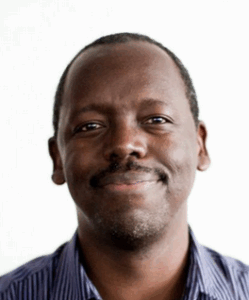
Executive Director, Twaweza East Africa
Aidan Eyakuze heads a leading regional civil society organiza-tion that works to enable children to learn, citizens to exercise agency and governments to be more open and responsive in Tanzania, Kenya and Uganda. Before joining Twaweza in 2015, he was associate regional director of the Society for International Development based in Tanzania. In 2016, he was appointed to the global steering committee of the Open Government Partnership (OGP) and to the board of directors in 2023. He also serves on the board of the Global Partnership for Sustainable Development Data. He is a United World Colleges alumnus, an Archbishop Desmond Tutu Leadership fellow and a member of the Aspen Global Leader-ship Network.
Isabelle Ferreras
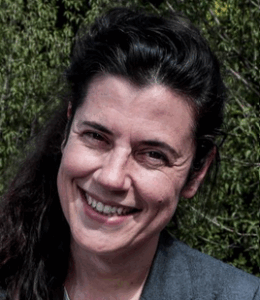
Professor of sociology, University of Louvain
Sociologist as well as political scientist, Isabelle Ferreras is a senior tenured fellow of the Belgian National Science Founda-tion and a permanent researcher of the Louvain CriDIS (Centre de recherches interdisciplinaires Democracy, Institutions, Subjec-tivity). She is a senior research associate of the Center for Labor and a Just Economy at Harvard Law School. In 2020, with colleagues across the globe, she launched the #Democratizin-gWork movement, which she coordinates. She works on labor issues, particularly democratizing firms through a bicameral model.
Fernando Filgueira
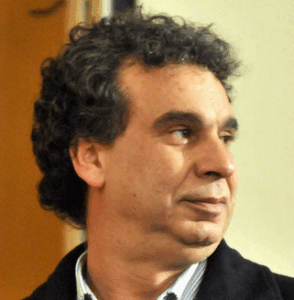
Head of office, United Nations Population Fund in Uruguay Professor, Social Science Faculty, Universidad de la Repúblicaa
Fernndo Filgueira’s research centers on social structure, social policy and welfare regimes in Latin America. He has been a central player in multilateral institutions since his proposal of Basic Universalism (Inter-American Development Bank, 2006) as a blueprint for welfare reform in Latin America, advising governments and influencing the World Bank, the Economic Commission for Latin America and the Caribbean, and specialized UN agencies. He was vice-minister of Education in Uruguay. He is a contributor to the T7/T20 recommendations group for the G7/G20. He received the Von Humboldt Award for his contributions to the social sciences in 2020.
Sakiko Fukuda-Parr
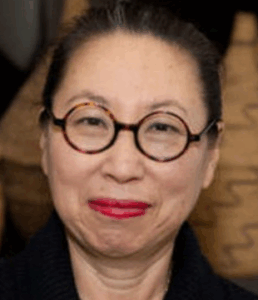
Professor of International Affairs, The New School
Sakiko Fukuda-Parr’s teaching and research focus on decolonizing international affairs, global health, and global goal setting and governance by indicators. She has worked on the political economy of international development and the power of ideas and discourses in shifting policy approaches. From 1995 to 2004, Sakiko Fukuda-Parr was lead author and director of the UNDP Human Development Report. She currently serves as chair of the UN Committee on Develop-ment Policy, an expert committee of UN ECOSOC, and co-leads the Collective on the Political Determinants of Health.
Debra Furr-Holden
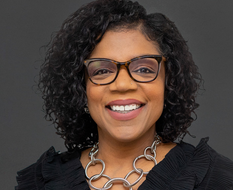
Dean, NYU School of Global Public Health
Debra Furr-Holden is a professor of epidemiology and a public health leader with broad expertise in health disparities and policy-level interventions promoting health equity. She was previously the C.S. Mott Endowed professor of public health & associate dean for public health integration at Michigan State University. She was an assistant and later associate Professor at Johns Hopkins’ Bloomberg School of Public Health, where she retains an adjunct professor appointment. She is the recipient of numerous awards and honors, including the White House Presidential Early Career Award for Scientists and Engineersh.
Ugo Gentilini
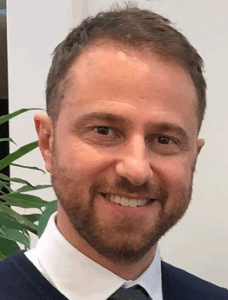
Lead economist, Social protection and jobs, The World Bank
Recently, he was a team member of the World Development Report on The Changing Nature of Work (2019); co-authored books like Exploring Universal Basic Income (2019) and Adaptive Social Protection; and co-founded The State of Social Safety Nets flagship in 2014. Before joining the World Bank in 2013, he spent a decade with the UN World Food Programme, including supporting early phases of safety nets and cash transfers piloting and policy.
Enora Hamon
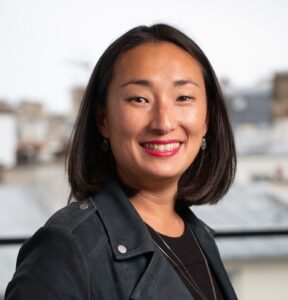
Deputy Managing Director, La France s’engage
Committed since 2003 to popular education and social inclusion, Enora Hamon was Secretary General of a student union for four years during her studies, before advising the senior management of very large groups on their responsible social and societal commitment.
Following this experience, she joined environmental economist Alain Grandjean to coordinate the project to create a training centre for economics and sustainable development.
In 2015, she took over as Director of Operations for Bibliothèques Sans Frontières (Libraries Without Borders) in France and spent four years overseeing the expansion of the association before creating its Canadian branch in 2020.
More
In addition to her role as Deputy Managing Director of La France s’engage, which she has held since 2020, Enora is President of IAE Paris-Est, the school from which she graduated with a Master’s degree in Corporate Responsibility Management (2013).
Sascha Haselmayer
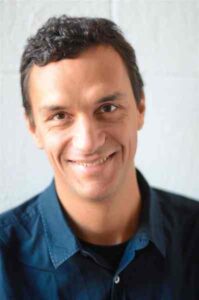
Social entrepreneur, Ashoka fellow
Ashoka fellow since 2011, Sascha Haselmayer is an author and social entrepreneur who has led urban innovation, economic development and government innovation projects in over fifty countries. He is a non-resident fellow at the Chicago Council on Global Affairs and a former fellow at New America in 2020-2021. Among other ventures, he founded Citymart, pioneering innovation in city procurement in more than 100 cities in the world. He has advised organizations such as the Rockefeller Foundation, Bloomberg Philanthropies, the Aspen Institute, the government of Chile, and the World Bank Groug.
Samia Huq
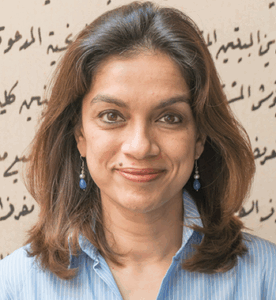
Professor of anthropology, Brac University
Samia Huq is dean of the School of General as well as Research Fellow at the Center for Peace and Justice. She has been involved in research on the impact of secondary secular and madrasa education on gendered norms and practices, as part of the Initiative on Education, Gender and Growth in Asi. She is the chief academic officer representing Brac University at the Open Society University Network (OSUN), building bridges between various academic programs and universities and overseeing student and faculty mobilit.
She authored and was involved in the International Panel on Social Progress.
Aderonke Ige
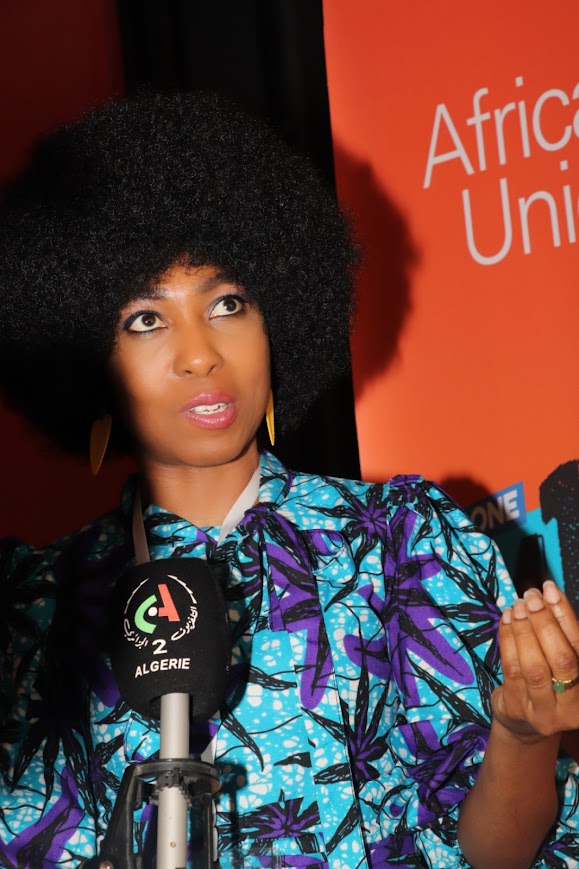
Founder, Help Initiative for Social Justice and Humanitarian Development
Born during the military regime in Nigeria, with early childhood experiences of oppression, exclusion and first-hand brazen violations of Human Rights, Aderonke knew from early on that she would fight for opposite realities and engage actively in the defence of human rights and public interests. She has been actively engaged in social justice advocacy and environmental justice campaigns for over 15 years.
Aderonke Ige is a human rights lawyer, social justice advocate and environmental justice campaigner based in Nigeria.She founded the Help Initiative for Social Justice and Humanitarian Development, a nonprofit that works with young people to build people power and organise communities for participatory governance and a people-centred democracy.
More
Aderonke championed legislative advocacies that led to the enactment of Community Service Law in Oyo state, Nigeria, Land grabbing prohibition, Anti-kidnapping Law, Administration of Criminal Justice Law and other public interest legislation between 2015 & 2017, as direct criminal Justice reform interventions, during her years of work at Justice Development and Peace Commission.
Aderonke currently leads campaigns promoting democratic control of natural resources in communities across Nigeria and Africa, on water governance and climate justice in frontline communities of extractive activities, where she works with women to build power and resilience to respond to cross-cutting issues of women’s rights, social reproduction and environmental justice.
Also a Chevening scholar, she had her Law degree from the University of Benin in Nigeria and a Master’s degree in Development Studies at the School of Oriental and African Studies| (SOAS|), University of London.
Bulelani Jili
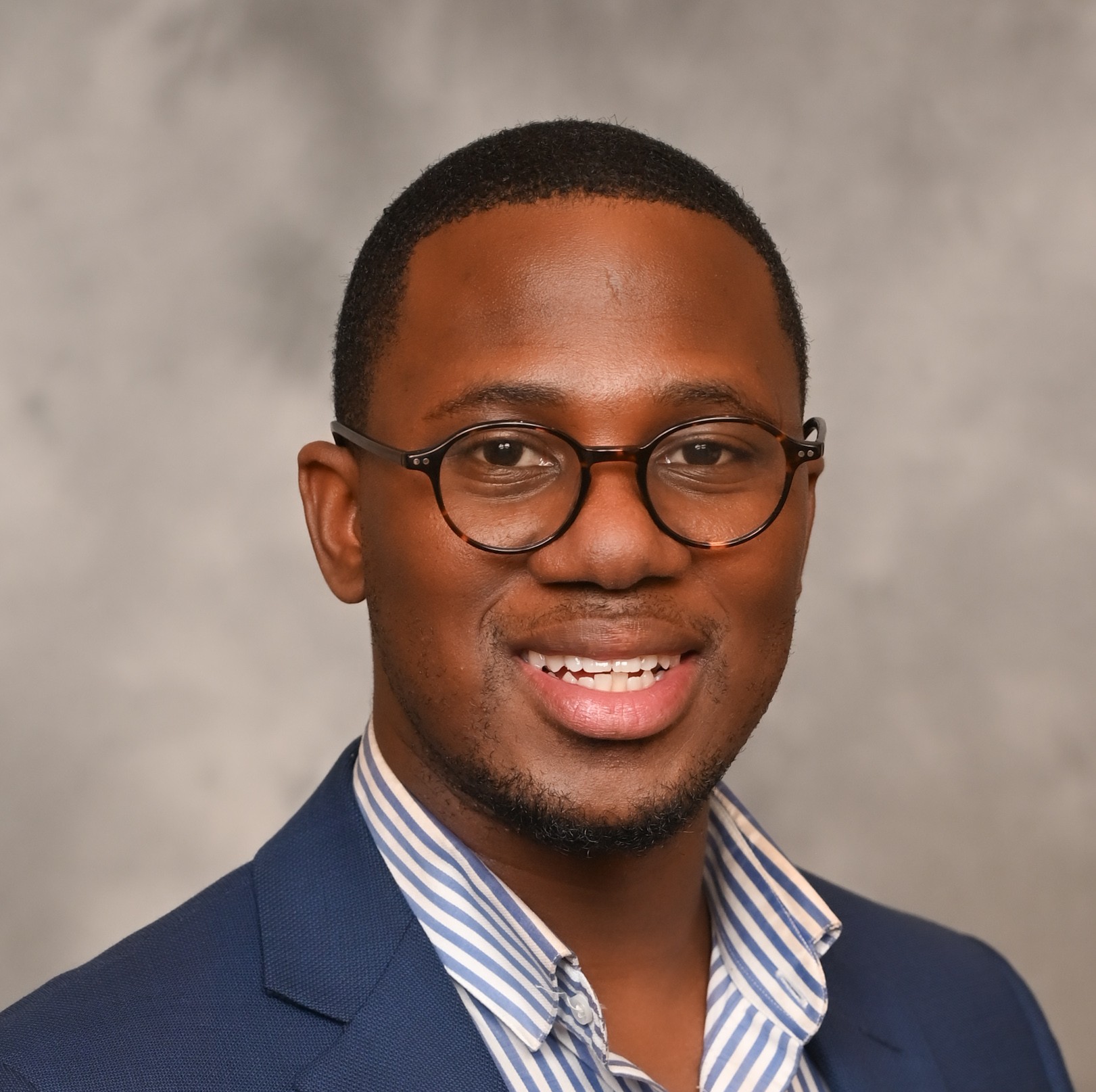
Assistant Professor, Georgetown University, Faculty Associate, Harvard University
Dr. Bulelani Jili is a globally recognized scholar on AI governance, Africa-China, and emerging technologies in the Global South. He is an Assistant Professor at Georgetown University’s Edmund A. Walsh School of Foreign Service, where he teaches in the African Studies and Science, Technology & International Affairs (STIA) programs. His research interrogates the geopolitical, legal, and ethical dimensions of AI, surveillance technologies, digital infrastructure, and cybersecurity—particularly in the context of Africa-China relations and global regulatory regimes.
More
Dr. Jili has advised national governments and multilateral institutions on surveillance and responsible AI governance, including the United Nations General Assembly, the U.S. State Department, OpenAI, the French government, and the UK Foreign, Commonwealth & Development Office. He was formerly a Cybersecurity Fellow at Harvard’s Belfer Center, a Fellow at the Atlantic Council, and contributed to the European Research Council–funded China, Law, and Development project at Oxford University.
A Faculty Associate at the Berkman Klein Center for Internet & Society at Harvard and Visiting Fellow at Yale Law School, Dr. Jili’s work has been published and has appeared in Nature, Lawfare, African Affairs, Bloomberg, The Economist, Theory, Culture & Society, Financial Times, and Tech Policy Press. He holds a Ph.D. from Harvard University and advanced degrees from Cambridge and Peking Universities.
Lila Karbassi
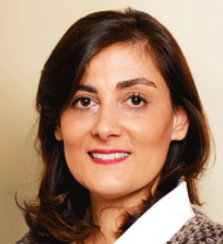
Chair, SBTi executive board, Senior programme officer, United Nations Global Compact
Lila Karbassi’s work supports the United Nations’ agenda to deliver a resilient net-zero future and drive business ambition towards the achievement of the Paris Agreement on Climate Change. She is currently serving as the chair of the Science-based Target Initiative (SBTi), acting as a liaison between the SBTi and the UN Global Compact. She has been instrumental to the work of the UN Global Compact since 2005, and served – between 2017 and 2022 – as the chief of programmes. In 2016, Lila Karbassi was seconded to the Office of the UN Secretary-General supporting business engagement on the Sustainable Development Goals and the 2030 Agenda for Sustainable Development.
Uichol Kim
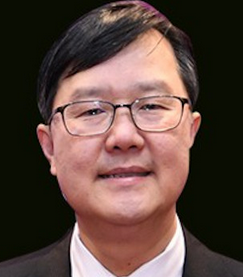
Professor of social psychology, Inha University
Uichol Kim’s research interests focus on the software of the mind: genetics, neurobiology, human agency, indigenous and cultural psychology, quality of life, work values, management, leadership, human rights, and human software interface of Artificial Intelligence, and augmented reality. He has taught at the University of Tokyo and at the University. of Hawaii. He worked with Pfizer, Stryker, CIDA, BASF, Ciputra, Toyota, LG and Samsung. He is the founding editor of the Asian Journal of Social Psychology.
Dina Kiwan
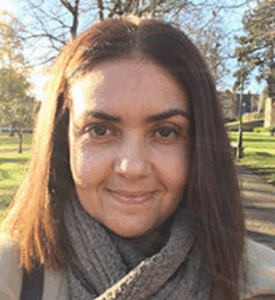
Professor in comparative education, University of Birmingham
Dina Kiwan is deputy director of Research and Knowledge Transfer at the University of Birmingham. She has an interdis-ciplinary background in psychology, sociology and education, educated at the universities of Oxford, Harvard and University College London. She was the Centre for Lebanese Studies fellow at the University of Oxford (2015-2016) and associate professor in sociology at the American University of Beirut (2012-2017). She leads the Global Challenges Research Fund Arts and Humanities Research Council’s ‘Disability Under Siege Network Plus’ programme (2020-2024) working with partners in Jordan, Lebanon and Palestine to address the chal-lenge that most children with disabilities never go to school.
She was a lead author in IPSP 1 on education.
Daniel Kostzer
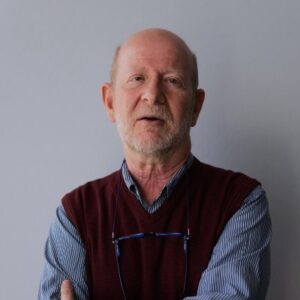
Chief economist, International Trade Union Confederation
Daniel Kostzer was senior Regional Wages specialist at the ILO Asia and the Pacific, and a former board member at the World Bank Group. His earlier positions include senior economic advisor at the UNDP Myanmar, head of the socio-economic unit at United Nations Mission (UNMIT) in Timor-Leste, Coordinator of the Social Development Cluster at the UNDP Argentina, director of Research and Macroeconomic Coordination at the Argentine ministry of Labor. He is a consultant on poverty reduction, income distribution and employment policies and was a member of the knowledge networks of the World Commission on the Social Dimension of Globalization, ILO.
Will Kymlicka
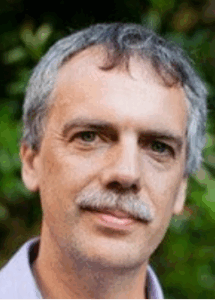
Canada Research Chair in political philosophy, Queen’s University
Will Kymlicka’s research focuses on democracy and diversity. He is co-director of a CIFAR program on Boundaries, Membership and Belonging, which explores whether we can redraw these boundaries in a more inclusive way without losing solidarity and the possibility of collective action. He is the co-director of the Multiculturalism Policy Index project, which monitors the evolution of multiculturalism policies across the Western democracies and contributes to the understanding of state-minority relations. He was appointed to the Order of Canada in 2023. He was a coordinating lead author in IPSP on Social Progress and Cultural Change.
Guillermo Larrain
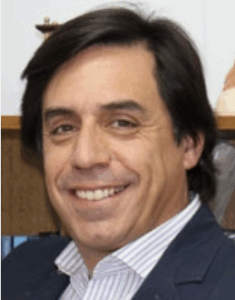
Associate professor of economics, University of Chile
He co-chairs the Interfaculty Center for Law, Economics and Business (LEXEN) at the University of Chile. He has been president of Banco del Estado de Chile, chairman of the Superintendencies of Securities and Insurance and Pensions and chief economic policy coordinator of the ministry of Finance of Chile. He has been vice-president of the Corporación Educacional Alianza Francesa de Chile, member of the board of directors of Banco Internacional in Chile, of the Economic Advisory Board of the International Finance Corporation, of the advisory boards of the Efromo-vich-Silva Investment Fund in Colombia and of the Securities and Commodities Authority of the United Arab Emirates.
Sangheon Lee

Director, Employment, Job Creation and Livelihoods Department, ILO
Sangheon Lee runs the department which leads the International Labor Organization’s action for promoting full and productive employment by developing integrated employment, development and skills policies. He is currently leading the ILO’s work in monitoring the labor market impacts of multiple crises (ILO Monitor on the World of Work). He was the special adviser to the deputy director-general for Policy on Economic and Social Issues (2014-18), and an acting director for the Research Department (2017-18). He is also one of the main authors of ILO flagship reports such as the Global Wage Report and the World Employ-ment and Social Outlook.
Amandine Lepoutre

President, Thinkers & Doers, and , Art for Action
Thinkers & Doers focuses on stories of those who do, think and act differently to reform our societal pillars: markets, corporates, social protection policies and democratic deliberation mechanisms. Founder Amandine Lepoutre created The General Assembly of Citizen Entrepreneurs, which brings together 250 international decision-makers to promote socio-economic progress at the UN and the OECD. At Art for Action, she leads projects on education and information, to build generations of enlightened leaders. She supports the development of peace programs in schools in Europe and Africa.
Takyiwaa Manuh
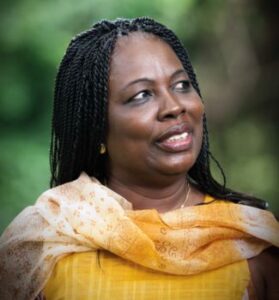
Emerita professor of African studies, University of Ghana
Takyiwaa Manuh is a senior fellow at the Ghana Centre for Democratic Development. She served as director at the Social Development Policy Division of the United Nations Economic Commission for Africa in Ethiopia, and was director of the Institute of African Studies at the University of Ghana between 2002 and 2009. Her research interests are in African development, women’s rights and empowerment, contemporary African migrations, and African higher-education systems. She was a lead author in IPSP1 and has been a member of the IPSP Coordination Council since January 2023. She is a fellow of the Ghana Academy of Arts and Sciences and has received several awards including an honorary doctorate degree from the University of Sussex in 2015. She holds degrees in law from the University of Ghana and from the University of Dar es Salaam, and a Ph.D in anthropology from Indiana University.
Juliana Martinez Franzoni
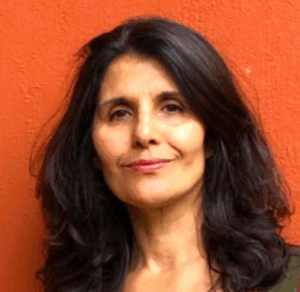
Professor of social policies, University of Costa Rica
Juliana Martínez Franzoni studies comparative social policy in Latin America and the global south. She is an awardee from the Humboldt Foundation for outstanding research careers in developing countries. She has been a Fulbright scholar and a visiting fellow at the Kellogg Institute for Inter-national Studies, DesiguALdades-net (Germany), CIEPP (Argentina), and the University of Austin. Her research of social policy provides a comprehensive view of the welfare state – including the role of families – in Latin America. She is co-editor of Social Politics and undertakes regular consultancies with different international institutions like UNDP and UN-Woman.
Shanaaz Mathews
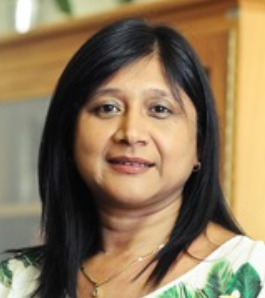
Professor of health sciences, University of Cape Town
Shanaaz Mathews has led the national study on Femi-cide and Child Homicides in South Africa with a focus on pathways to violent masculinities. Her current research focus is the intersections of violence against women and children with a focus violence prevention programming. She is a Commissioner on the Lancet Commission on Gender-based Violence, a lead investigator for the Department of Science and Technology, National Research Foundation Centre of Excellence on Human Development, at the Univer-sity of the Witwatersrand. She also serves as the Evaluation Lead for the UK’s Foreign, Commonwealth and Development Office ‘What Work 2 Impact at Scale’ research component.
Claire Mellier
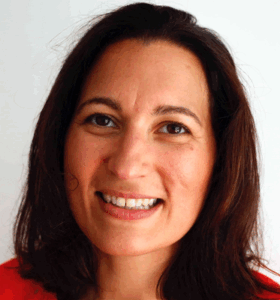
Co-founder, Global Assembly
Claire Meillier is a facilitator, process designer and researcher with expertise in delivering participative processes which put citizens at the heart of decision making. In 2020, in collaboration with other partners, she initiated and organized the first global Citizens’ Assembly: the Global Assembly on the climate and ecological crisis for COP26, which received the backing from UN Secretary General, António Guterres. She was part of the facilita-tion team at Climate Assembly UK and Scotland’s Climate Assembly and one of the accredited researchers who observed Convention Citoyenne pour le Climat. She is knowledge and practice lead at Iswe Foundation.
Leticia Merino
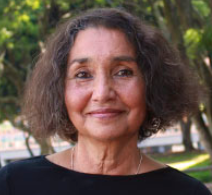
Chair, Coordination for Sustainability, Universidad Nacional Autónoma de México
Leticia Marino has worked for 35 years on forest and land use by indigenous communities in Mexico and Central America, at the Universidad Nacional Autónoma de México (UNAM). Since 2021, she chairs UNAM Coordination for Sustainability. She is author of 80 scientific articles and eight books on governance of natural resources, environmental justice, and social impacts of the environmental crisis. She was president of the International Association for the Study of the Commons (2013-2015), lead author for the Global Report of the International Panel for Biodiversity and Ecosystems, and member of the Committee for Development Policies of the United Nations (2015-2021).
Helena O. Mishoe
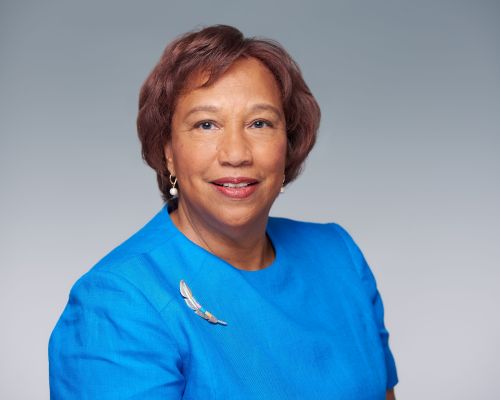
Assistant Surgeon General (Ret), Unites States Public Health Service (USPHS)
In December 2017, RADM (Ret) Helena O. Mishoe retired from the USPHS as an Assistant Surgeon General, and the National Institutes of Health (NIH), where she served as a research scientific executive and health disparities and global health expert. RADM Mishoe holds the PhD degree in Microbiology and Immunology from Georgetown University School of Medicine. Subsequently, she joined the NIH intramural research program contributing to research domains in stem cell biology, regenerative medicine, and gene expression in HIV, tumor biology, blood diseases, and diabetes.
More
In 1988, RADM Mishoe joined the National Heart, Lung, and Blood Institute, NIH where she had a number of notable accomplishments, culminating her distinguished career as the Associate Director for Research Training and Diversity, providing scientific oversight for cutting-edge biomedical research to help improve health outcomes of marginalized and underserved populations. In 2002, she was awarded the Master of Public Health from the Uniformed Services University School of Medicine. In December 2011, she earned the graduate Certificate in Global Health from the University of North Carolina, Chapel Hill.
During her 36 years in Federal and Active-Duty service, RADM has received numerous PHS Awards including the Surgeon General’s Exemplary Medal and the Distinguished Service Medal. She also was awarded the Honorary Degree of Doctor of Science, honoris causa from the University of Toledo. She has received numerous notable civilian recognitions, including the prestigious NIH Director’s Ruth Krischstein Mentoring Award and the NHLBI, NIH Postbaccalaureate Research Fellowship titled, the ‘RADM Helena O. Mishoe Fellowship for Underrepresented Scientists’ named in her honor. In May 2020, the Commissioned Officers Foundation awarded the first RADM Mishoe Diversity “Believe” Scholarship for High School Seniors.
RADM Mishoe continues to travel, study French, mentor the next generation, and volunteer for the Peace Corps and the American Red Cross. She is working group member and Board Member for the World House Project, an independent international nongovernmental organization, committed to realizing the ideals of a “world house” where humanity learns to live together in dignity, liberty, and community.
Doris Mwikali
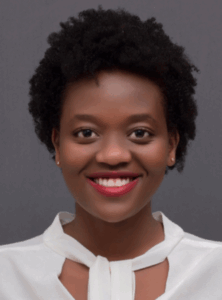
Youth representative, SDG4 High-Level Steering Committee
Doris Mwikali advocates for rapid and radical educational transformation to support sustainable and just societies. She is member of the SDG4 High-Level Steering Committee, the apex body for global coordination and monitoring of education systems that ensures the systematic alignment of approaches for education-related targets within the United Nations SDG structure. During the 2022 UN Transforming Education Summit, as part of the Transforming Education Summit Youth Advisory Group, she led the Youth Declaration process that was part of the UN Secretary-General’s Common Agenda.
Jeremy Myerson
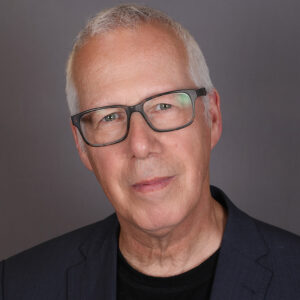
Professor Emeritus, Helen Hamlyn Centre for Design at the Royal College of Art;
Co-founder, WORKTECH Academy
Jeremy Myerson is a design writer, researcher and educator, based in London. His work explores the role of design and designers in driving social change.
He is Professor Emeritus at the Royal College of Art; Chairman of WORKTECH Academy, a global knowledge network for the future of work; and Visiting Professorial Fellow at the Oxford Institute of Population Ageing. He is also co-founder and the academic lead for the Healthy City Design Congress, and he chairs the Learning & Research Committee at the Design Museum.
More
A former journalist and editor on such titles as Design, Creative Review and World Architecture, Jeremy Myerson founded Design Week magazine in 1986 and later co-founded the Helen Hamlyn Centre for Design at the RCA in 1999. As director of the centre for 16 years, he led a series of interdisciplinary research projects at the intersections of design, health, work and cities.
He has consulted internationally with business, academia and government on inclusive design and the future of work. He is the author of several of influential books in these fields, the latest of which are ‘Unworking: The Reinvention of the Modern Office’ (2022) and ‘Designing a World for Everyone: 30 years of Inclusive Design’ (2021).
Laurie Nathan
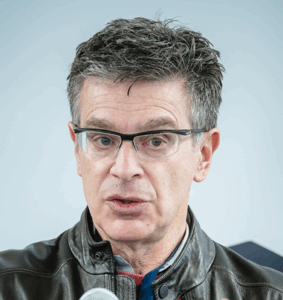
Professor of the Practice of Mediation, Univ of Notre Dame
Laurie Nathan is Director of the Mediation Program at the Kroc Institute for International Peace Studies, University of Notre Dame. He has done extensive research on international mediation, focusing in particular on mediation in civil wars and coups. He was previously director of the Centre for Conflict Resolution at the University of Cape Town and director of the Centre for Mediation in Africa at the University of Pretoria. He has been a senior mediation advisor to the United Nations, the European Union, Southern African Development Community, Intergovernmental Authority on Development in Eastern Africa, Economic Community of West African States.
Mitali Nikore
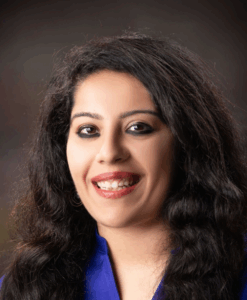
CEO, Nikore Associates
Mitali Nikore is a development economist and founder of Nikore Associates, with over 12 years of experience in gender mainstreaming in urban mobility, transport, logistics, and regional connectivity. She specializes in multimodal transport, economic corridors, and sustainable infrastructure across South Asia, advising institutions like the World Bank, GIZ, UN, ADB, G20, and other multilateral and national bodies.
She recently worked with the Ministry of Women and Child Development, Government of India, to advance India’s Care Economy.In recognition of her work, Mitali was recently awarded the Urban Infra Rising Women Leader of the Year at RailTrans Expo 2025 and the SABERA Award for Emerging Think Tank of the Year 2024. A TEDx speaker and LinkedIn Top Voice for Gender Equality, her insights appear in leading media including BBC News, NDTV, and Indian Express.
Funmilola OlaOlorun
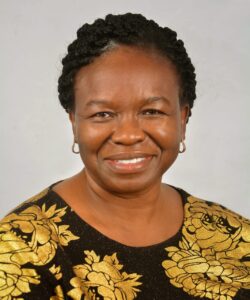
Associate Professor, Department of Community Medicine, College of Medicine, University of Ibadan
Dr. Funmilola OlaOlorun is a Community Health Physician with a PhD in Public Health from the Department of Population, Family and Reproductive Health at Johns Hopkins University (2013). She teaches and supervises research projects of medical and postgraduate public health students in her current role as Associate Professor in the Reproductive and Family Health Unit of the Department of Community Medicine at the College of Medicine, University of Ibadan, Ibadan, Nigeria. Her research is focused on women’s health across the life course.
More
More specifically, she has conducted research in Nigeria in areas such as professional support for breastfeeding, family planning, fertility desires, household decision-making, adolescent health, abortion measurement, intimate partner violence, and menopause. Dr. OlaOlorun has co-authored over 80 papers published in peer-reviewed journals and serves as an Academic Editor for PLoS One and Contraception and Reproductive Medicine journals. Dr. OlaOlorun has been Principal Investigator/co-Principal Investigator for several projects related to Women’s Health and Reproductive Health in Nigeria. She is one of the co-Chairs of the Scientific Sub-committee for the International Conference on Family Planning (2022, 2025).
Charmaine Pereira
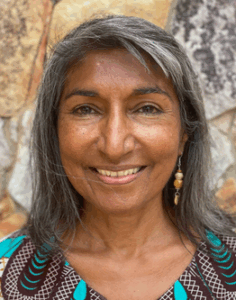
Author, scholar and civil society coordinator
Living in Abuja, Nigeria, Charmaine Pereira works on the gender and sexual politics of violence, feminist thought and practice, and the politics of natural resource extraction in Africa. She has organised action research on sexual harass-ment and sexual violence in Nigerian universities with a view to strategising for change. She has been an active force in the coalition pushing for passage of the Violence Against Persons (Prohibition) Act, 2015 in Nigeria and has coordinated research on implementation of the law.
Andre M. Perry
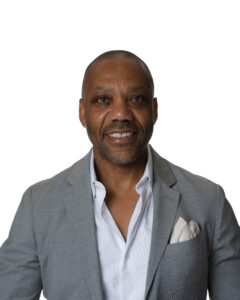
Senior Fellow, Brookings Metro; Director – Center for Community Uplift
Dr. Perry is the author of the book “Black Power Scorecard: Measuring the Racial Gap and What We Can Do to Close It,” published by Metropolitan Books. In 2020, Brooking Press published Perry’s previous book, “Know Your Price: Valuing Black Lives and Property in America’s Black Cities.” Dr. Perry is a regular contributor to MSNBC and has been published by numerous national media outlets, including The New York Times, The Washington Post, The Nation, Bloomberg CityLab, and CNN.com. Dr. Perry has also made appearances on HBO, CNN, PBS, National Public Radio, NBC, and ABC. His research focuses on race and structural inequality, education, and economic inclusion.
More
Dr. Perry’s recent scholarship at Brookings examines well-being across racial groups and regions in America, focusing on how investments in critical assets can lead to thriving. His pioneering work on asset devaluation has made him a go- to researcher for policymakers, community development professionals, and civil rights groups. He co-authored the groundbreaking 2018 Brookings Institution report “The Devaluation of Assets in Black Neighborhoods,” and has presented its findings on the price of homes in Black neighborhoods across the country, including to the U.S. House Financial Services Committee. He has extended that report’s focus on housing in Black neighborhoods to include other assets such as businesses, schools, and banks.
Simone Phipps

Professor, Middle Georgia State University; Research Fellow, University of Cambridge Judge Business School
Simone T. A. Phipps, PhD, is a Professor of Management in the School of Business at Middle Georgia State University (USA), and a Research Fellow at the University of Cambridge Judge Business School’s Centre for Social Innovation (UK). She is also a member of the Thinkers50 Radar Class of 2021 and a winner of the Thinkers50 Breakthrough Idea Award. Her research interests include Management History, Entrepreneurship, Leadership, Social Innovation, Social Sustainability, and relationships between the organization and society. Her research usually involves the exploration of gender, racial, and ethnic minorities, with the aim of highlighting their struggles and contributions, as well as finding possible solutions to improve the minority experience in business and society.
More
She presents her research at distinguished conferences, and has published in a number of scholarly outlets including the Journal of Business Ethics, Academy of Management Learning & Education, Harvard Business Review, MIT Sloan Management Review, and the Journal of Management History. She and her co-author have been recognized by the Academy of Management for publishing “ground-breaking African-American Management History research,” and have also written a book entitled African American Management History: Insights on Gaining a Cooperative Advantage.
Reza Pourvaziry
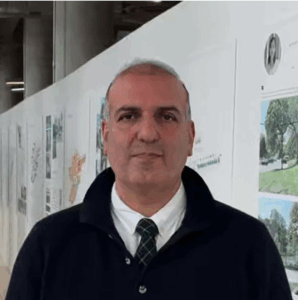
Chair and Founder, Urban Economy Forum (UEF)
Reza Pourvaziry is a distinguished architect, scholar, and global urban advocate, committed to advancing sustainability and transformative urban development worldwide. As the founder of the Urban Economy Forum (UEF), now an influential international platform, he convenes annual gatherings of thought leaders, policymakers, and innovators to shape the future of cities.
He spearheaded the creation of the World Urban Pavilion under UN-Habitat, supported by the Government of Canada, as a hub for innovation, knowledge exchange, and the advancement of the Sustainable Development Goals (SDGs). Reza serves on the Steering Committee and as Co-Chair of philanthropies Committee for the UN-Habitat World Urban Campaign, amplifying global collaboration on urban transformation.
More
His long-standing partnership with UN-Habitat includes significant contributions to the World Cities Report in 2016 and 2020. From 2016 to 2020, he served as the first Global Advocate for UN-Habitat, appointed by Dr. Joan Clos, Under-secretary general and UN habitat Executive Director.
An influential speaker and program designer, Reza has launched groundbreaking initiatives, including the “ Front Runner” program for urban SDGs and urban transformation at the world level. Through his vision and dedication, he continues to inspire action toward sustainable, inclusive, and resilient cities, fostering a future where urban prosperity is shared by all.
Wizdom Powell
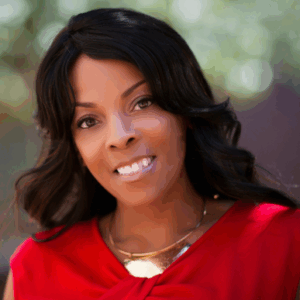
CEO
Dr. Wizdom Powell is a visionary leader at the nexus of mental and behavioral health, education, advocacy, and multi-sectoral community programming. As the inaugural Chief Executive Officer of Unified Youth, she brings over two decades of experience driving systemic change through data-driven policy action, place-based interventions, and rigorous impact measurement. A tenured professor and nationally recognized thought leader, Dr. Powell has shaped national mental health policy, led groundbreaking public-private partnerships, and worked globally to advance equity-driven solutions that create measurable, lasting change across all facets of population health.
More
Dr. Powell received a Ph.D. and M.S. in Clinical Psychology and M.P.H. from the University of Michigan-Ann Arbor and has held tenured professorships at some of the nation’s most prestigious academic institutions including the University of Connecticut where she served as Associate Professor of Psychiatry and Director of the Health Disparities Institute and UNC-Chapel Hill’s Gillings School of Global Public Health, where she served as Research Associate Professor in the Department of Behavior Health and Associate Director of the Center for Health Equity Research in the Department of Social Medicine.
Most recently, Wizdom was the Chief Purpose Officer at Headspace where she oversaw the organization’s Social Impact, Legislative Affairs, and Environmental, Social, Governance (ESG) portfolios as well as company-wide organizational culture and belonging efforts. During her time at Headspace, she spearheaded an innovative partnership with the City of Hartford, Connecticut that promoted a citywide culture of mindfulness and mental health through resource provision, evaluation, and training.
Dr. Powell has deep expertise with localized population health interventions and place-based mental health research, programming, and advocacy across the country. Dr. Powell has been called on to provide hearings and testimony for bipartisan committees driving national policy around mental health. Dr. Powell has also held a number of prestigious fellowships with leading institutions, and her work has spanned the globe. Dr. Powell has also served as a brand strategist for corporations, non-profits, and academic institutions.
Leon C. Prieto
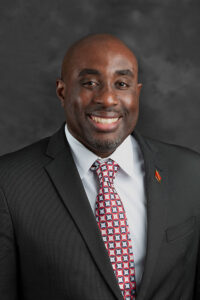
Professor, Clayton State University, Georgia
Leon C. Prieto, Ph.D. is the Founding Director of the Center for Social Innovation & Sustainable Entrepreneurship and a Professor of Management in the College of Business at Clayton State University. He also serves as a Research Fellow at the Cambridge Centre for Social Innovation at the University of Cambridge’s Judge Business School.
Dr. Prieto’s research focuses on inclusive entrepreneurship, responsible management, and the intersection of business and social innovation. His work has been published in leading academic and practitioner outlets, including the Journal of Business Ethics, Harvard Business Review, and MIT Sloan Management Review.
More
He is the coauthor, with Dr. Simone Phipps, of the book African American Management History: Insights on Gaining a Cooperative Advantage, now in its second edition. His scholarship has earned recognition from prestigious organizations such as Thinkers50, the Thinklist, and the United States Association for Small Business and Entrepreneurship (USASBE).
Most recently, Dr. Prieto was selected to serve as a Professional Speaker and Expert for the U.S. Department of State’s U.S. Speaker Program. In this role, he will share his insights on entrepreneurship, leadership, and sustainable development with global audiences.
Wendy M. Purcell
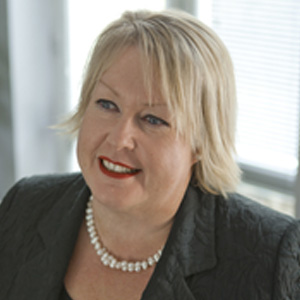
Professor, Rutgers School of Public Health
My purpose lies in transforming lives through education and research in pursuit of social equity, the knowledge economy, and sustainable development. Full Professor & Vice Chair Education, Rutgers School of Public Health, Department of Environmental & Occupational Health & Justice, Rutgers University. Co-Chair Rutgers Health Climate Action Group & Co-Director Center for Climate, Health, & Healthcare. Before joining Rutgers Fall 2022, Wendy was at Harvard T.H. Chan School of Public Health (2016-2022) and continues as Visiting Researcher & Instructor with Harvard University. Visiting Professor University College London Global Business School for Health & Fellow Environmental Association of Universities & Colleges, Chair Sustainability Leadership Academy held at University of Cambridge.
More
Governing Board Member European University EELISA, Member American Association of Universities & Colleges, and Member ASPPH National Task Force on Climate & Health. President Emerita Plymouth University (2007-2015) taking it to the top 1% of world universities & number 1 ‘green’ UK university; awarded Queen’s Anniversary Medal for Excellence in Higher Education; Emeritus Professor of Biomedicine. Works with United Nations (UN Habitat, UN Environment Programme) Quality-of-Life program. Editor of international journals in sustainability, climate, and higher education; authored 100+ research papers and several books on sustainability and the SDGs; Goal Adviser to Emerald Publishing on the Fairer Society.
Camille Putois
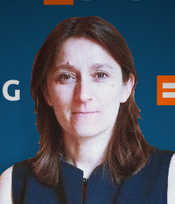
Partner, fgs Global
Camille Putois joined in 2020 the global CEO-led coalition of major companies coordinating with governments to advance inclusive growth. She provides overall leadership to B4IG’s program of work, which consists of concrete and measurable actions to fight against inequalities, sharing and promoting the most innovative and successful initiatives, and developing new forms of public-private financial solutions to support inclusive business models. She previously had a career in the French administration (deputy chief of staff to France’s prime minister, French Ministry of the Interior). She was also the founder of a GovTech startup, while simultaneously advising European tech companies on strategies and critical issues.
Gabriela Ramos
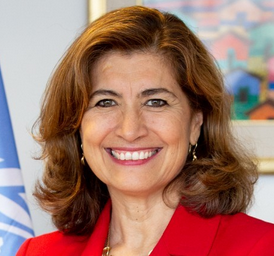
Assistant director-general, Social and Human Sciences, UNESCO
At UNESCO since 2020, Gabriela Ramos oversees the institution’s contributions to building inclusive societies. Her mandate includes tackling economic inequalities of income and opportunity, and promoting social inclusion and gender equality. She oversees the youth support agenda, promotion of values through sport, fight against racism and discrimination, and ethics of science. She worked more than 20 years for the OECD (1999-2020), ending with the high position of OECD chief of staff and sherpa to the G20. She was also professor of international economy at the Universidad Iberoamericana and at the Instituto Tecnológico Autónomo de México.
Marta Roig

Chief, Emerging Issues and Trends, UN-DESA
Marta Roig has over 25 years of experience conducting policy research and analysis related to inequality, social exclusion, international migration and their linkages to development. She currently leads the preparation of United Nations World Social Report of the Department for Economic and Social Affairs and that of other research productions on social issues. She is supporting consultations and coordinating technical input for a UN World Social Summit in 2025. Before joining the Division for Inclusive Social Development, Marta worked with the UN Population Division and at the United Nations Population Fund (UNFPA).
Rana Sabbagh
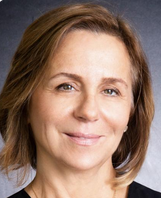
Senior Editor, Middle East/North Africa, OCCRP
Rana Sabbagh is co-founder of the award-winning Arab Reporters for Investigative Journalism (ARIJ), an OCCRP member. She joined OCCRP in 2020, working with Arab investigative journalists to produce high-quality, ambitious cross-border investigations in the largely autocratic and male-dominated region. She has dedicated her decades-long career as a journalist, columnist, and media trainer across the MENA region to promote free speech, human rights, gender equality, independent media, and the culture of ‘accountability journalism’. As the chief editor of The Jordan Times, she became the first Arab woman in the history of the Levant to run a daily political newspaper. He is the MENA region representative on the Board of Directors of the Global Investigative Journalism Network.
Edwin St Catherine

CEO, Data Point Solutions Inc
Edwin St Catherine holds a Bachelor of Science Degree in Economics from the University of the West Indies. In 1992 he was awarded a Master of Science Degree in Economics and Politics by the University of Cambridge, England.
From 1993 to2019, Mr. St Catherine was the Director of the Central Statistical Office of St Lucia. Mr. St Catherine retired as Director of Statistics in February 2019 after 28 years of serving in that position. Mr. St Catherine was a member of CARICOM’s Regional Advisory Group on Statistics. In addition, Mr. St Catherine has served on and chaired several UN Statistical Division Expert Groups, including the review of the World Demographic Yearbook and the development of the UN principles and recommendations for the 2010 round of Censuses. He also recently supported the subject matter and technology implementation processes for the Census 2022 in OECS Countries.
More
Mr. St Catherine has worked extensively on the development and conduct of labour force surveys in CaribbeanCountries. He is a registered expert with the International Monetary Fund (IMF) on inflation, and national consumption expenditure baskets development; in that regard, he has worked as a technical advisor to the Caribbean, African, and Pacific countries. Mr. St Catherine has been a Consultant Statistician to the Caribbean Development Bank, PAHO/WHO, UNDP, and the IADB on Poverty, Health, Crime, and other social surveys in most Caribbean countries in the last 15 years. Mr. St Catherine is now the CEO of his firm; Data Point Solutions, Inc.
Thomas B. Singh
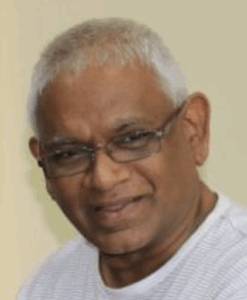
Professor, University of Guyana
Dr. Thomas B. Singh is Director of the University of Guyana GREEN Institute and Senior Lecturer in the Department of Economics at the University of Guyana. His career has spanned academia, the public sector, and the private sector, with professional experience at the Guyana Forestry Commission, the Bank of Guyana, and the Privatisation Unit, as well as with an environmental and economics consulting firm in the United States. At UG, his teaching and research focus on applied microeconomics and econometrics, with particular emphasis on environmental and natural resource economics, institutional and behavioural economics, and the economics of trust and cooperation. He holds a PhD in Economics from the University of Kent (UK), where his dissertation explored the role of norms, institutions, and social interactions in shaping trust.
More
Dr. Singh has contributed to national and regional policy dialogue on sustainable and inclusive development in resource-abundant countries, including Guyana. He has been instrumental in establishing the University of Guyana GREEN Institute and leads its annual green economy workshop series. Beyond academia, he is active in civil society as founding president of the Epilepsy Foundation of Guyana, and continues to advocate for policies that balance economic growth with social well-being and environmental stewardship.
Gonzalo Sozzo
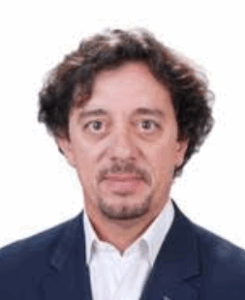
Professor of private and environmental law, Universidad Nacional del Litoral
Gonzalo Sozzo is the scientific director of the Institute for Advanced Studies of the UNL. He is professor of civil and contract law of obligations in the Faculty of Juridical and Social Sciences. He is responsible for the chair ‘Consumers Rights’ and academic coordinator of the study ‘Specialization in law of Damages’ and ‘Specialization in environmental law, urban planning and supervision of cultural heritage’. Since 2010, his main research topics have been the history of development models in Latin American constitutionalism; regional environmental constitutionalism in Latin America; climate change litigation in the global south; private law institutions in the Anthropocene era; consumer law and ecological transition.
Sofía Sprechmann Sineiro
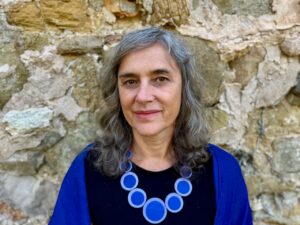
Sociologist and coordinator of the Latin American Forum on Decolonizing Aid
Sofía Sprechmann Sineiro is an Uruguayan sociologist and coordinator of the Latin American Forum on Decolonizing Aid on behalf of Acapacá. Secretary General of CARE International until October 2024, organization for which she worked for 30 years,
she has extensive global experience in humanitarian and development work across the Global South. She is a leader in aid reform. As part of her efforts to steer the international aid sector towards decolonizing its practices, she co-founded the Pledge for Change on Decolonizing Aid, and has served on the Inter-Agency Standing Committee. In 2023, she obtained the Humanitarian Hero of the Year Award.
Diane Stone
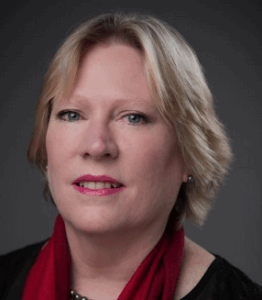
Chair of Global Policy, School of Transnational Governance, European University Institute
Diane Stone was dean of the School of Public Policy at Central European University in Budapest. Other professorial posi-tions have been held at the University of Canberra, Warwick University and University of Western Australia. At the World Bank, she was a member of the Secretariat that launched the Global Development Network. From 2004 to 2008, she was a European Commission Marie Curie Chair. She has been a consulting editor of Policy and Politics and she was co-editor of Global Governance: A Review of Multilateralism and International Institutions. Diane Stone is a founding vice-president of the International Public Policy Association.
Yonette Thomas
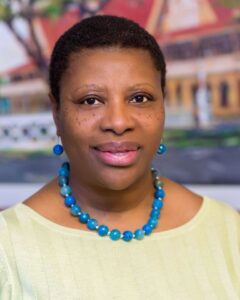
Founder & CEO,
UrbanHealth360
Dr. Thomas is the founder and CEO of UrbanHealth360, an INGO focused on bridging the divide between the science of urbanization and health and community engagement. She is currently a Visiting Associate Professor in the Department of Environmental and Occupational Health and Justice at the Rutgers University School of Public Health. She was a Dean’s Senior Scholar at the University of Memphis School of Public Health. She was a founding board member and inaugural executive director of the International Society for Urban Health, science advisor for urban health to the New York Academy of Medicine, vice president for research compliance at Howard University, and the chief of Epidemiology at the National Institute on Drug Abuse, National Institutes of Health.
More
She held academic positions in the Department of Public Health, University of Miami Miller School of Medicine, the Department of Psychiatry and Behavioural Sciences and the School of Pharmacy at Howard University. She is a member of the boards of US-based Women’s Economic Imperative (WEI) and the Kenya-based LVCT Health. Her scholarly publications range in focus from the social epidemiology of drug abuse to urbanization and health and the intersection of environment, social context, and health dynamics.
Laurence Tubiana
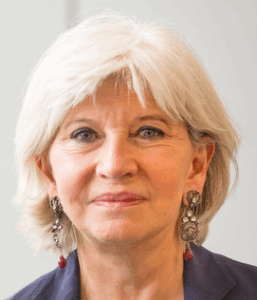
CEO, European Climate Foundation
Laurence Tubiana chairs the French Development Agency and teaches at Sciences Po, Paris. Before joining the ECF, she was France’s Climate Change Ambassador and Special Repre-sentative for COP21, and an architect of the landmark Paris Agreement. Following COP21, she was appointed High Level Champion for climate action. She served as senior adviser on the Environment to a former French prime minister and chaired the French National Debate on the Energy Transition. She founded Solagral, an NGO working on food security and the global environment; the Institute of Sustainable Development and International Relations (IDDRI); and the Directorate for Global Public Goods at the French Ministry of Foreign Affairs.
Stefaan Verhulst
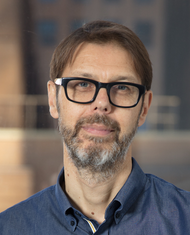
Co-Founder, The GovLab
Co-founder of The GovLab, an action research center focused on transforming decision making using advances in science and technology, Stefaan Verhulst is also the co-founder and principal scientific advisor of The DataTank, a do-and-think tank that focuses on how to re-use data differently to serve the common good. He is a research professor at the Center for Urban Science and Progress at the Tandon School of Engineering of NYU; editor-in-chief of the open-access journal Data & Policy; research director of the MacArthur Research Network on Opening Governance; and chairs the Data for Children Collaborative with Unicef.
Helena Wajnman
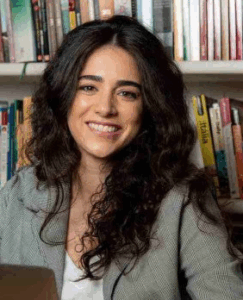
Board Member, República.org
Helena Wajnman works for República.org, a Brazilian non-profit organization that focuses on improving the quality of people management in the public sector. She holds a master of applied science in Data, Economics, and Development Policy from the Massachusetts Institute of Technology (MIT) and a Bachelor’s degree in economics from the Federal University of Minas Gerais (UFMG). Prior to joining República.org, she worked at Instituto Sonho Grande, where she helped design and scale a national public policy for extending school time. Helena Wajnman is a governance advisor at the Governance Innovation Initiative at MIT GOV/LAB and a member of the advisory committee of the Program Leaders that Transform at the Brazilian National School of Public Administration (ENAP).
David Williams
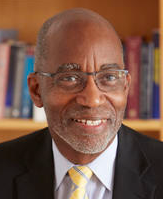
Professor of public health, Harvard T.H. Chan School of Public Health
David Williams is professor of African and African American studies and sociology at Harvard University and an interna-tionally recognized scientist on social influences on health. He studies the complex ways in which socioeconomic status, race, stress, racism, health behavior and religious involve-ment can affect health. The ‘Everyday Discrimination Scale’he developed is the most widely used measure of discri-mination in health studies. He was elected to the National Academy of Medicine, the American Academy of Arts and Sciences, and the National Academy of Sciences and received many prestigious awards from (American Sociological Association, American Psychological Association, New York Academy of Medicine.
Wing-Thye Woo
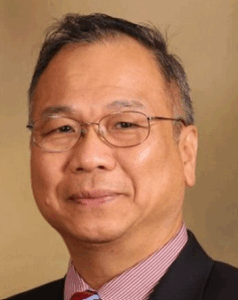
Vice-president for Asia, United Nations Sustainable Development Solutions Network
Wing Thye Woo is also distinguished professor emeritus at the University of California, senior visiting professor at Fudan University, and research professor at Sunway Univer-sity. Amongst his ongoing projects are (i) ASEAN Green Future, involving 9 country teams analyzing the different ways to achieve net zero emissions of CO2; (ii) the Science Panel for Southeast Asia Biodiversity Protection, a coalition of universities, state agencies, NGOs and corporations to expand the rainforests, promote green agriculture, and raise the welfare of the indigenous communities; and (iii) the Middle-Income Trap project which aims at accelerating inclusive economic catching-up, i.e. SDG 8 (Decent work and economic growth), SDG 9 (Industry, Innovation and Infrastructure), and SDG 10 (Reduced inequality).
Joannes Paulus Yimbesalu

AI Entrepreneur & Founder, Africa Skills Alliance
Joannes Paulus Yimbesalu is a Pan-African development leader, AI strategist, and social impact entrepreneur with over a decade of experience advancing youth employment, digital innovation, and inclusive policy solutions across Africa. He is the founder of Nanaade, an AI-powered job-matching platform revolutionizing how young Africans access employment, skills, and career guidance—incubated at the Harvard Innovation Lab and Social Innovation + Change Initiative.
More
Joannes has led national and regional programs with UNICEF and Generation Unlimited (GenU) in Nigeria, Niger, Benin, and Côte d’Ivoire. GenU is a global public-private youth partnership, a flagship program of the United Nations on a mission to skill the world’s 1.8 billion young people and connect them to opportunities for employment, entrepreneurship and social impact, especially in the most vulnerable communities. Joannes spearheaded large-scale digital skilling and youth employability initiatives, including the rollout of Yoma, a blockchain and AI-powered platform that has reached over 4 million youth.
He currently serves as Technical Lead for the Youth Entrepreneurship and Future of Work subgroup under the Women’s Economic Imperative and contributes to the International Panel on Social Progress (IPSP).
A published researcher, Joannes has co-authored “How AI is Bridging Gaps and Building Bridges in Development” and “From Ideas to Impact: Unlocking Youth-Centred Job Creation in Africa.” He holds a Mid-Career MPA from the Harvard Kennedy School and is committed to building inclusive, data-driven solutions that unlock the potential of Africa’s youth.
Bahru Zewde

Emeritus professor of history, Addis Ababa University
Bahru Zewde is founding fellow, vice-president of the Ethio-pian Academy of Sciences and fellow of the African Academy of Sciences. He was formerly chair of the Department of history and director of the Institute of Ethiopian Studies at Addis Ababa University and executive director of the Forum for Social Studies, a think tank based in Addis Ababa. He is the recipient of numerous awards and fellowships, including ones from the British Academy, the Japan Foundation, the Institute of Advanced Study (Wissenschaftskolleg zu Berlin) in Berlin and from the Humboldt University.
Xiaobo Zhang

Chair Professor of Economics, Peking University, Senior fellow, IFPRI
Xiaobo Zhang’s main research interests are development economics and Chinese economy. His research focuses specifically on agricultural economics, development economics, and the Chinese economy. He has rich field experience in developing countries, such as leading ambitious surveys like the Guizhou Household Panel Survey, or the China Family Panel Studies (CFPS) survey (as co-PI), the Enterprise Survey for Innovation and Entrepreneurship in China (ESIEC), Quarterly Online Survey on Micro-and-small Enterprises (OSOME) in China. He is the Chief Editor of China Economic Review. He was part of the Steering Committee of IPSP.
Former members
† Warren Feek
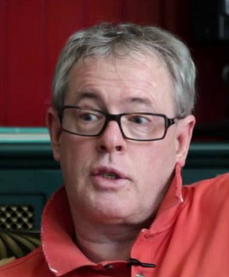
Executive director, Communication Initiative Network and Partnership
Over the past 25 years, Warren Feek has been heading a network of 90,000 people and organizations using media, communication, social change and behavior change strategies to address priority local, national and international development issues. That network has shared their work – 38,000 knowledge summaries – and engaged in review and dialogue for the purpose of helping to advance the scale, quality and impact of the work of other people in the network. He has a specific interest in understanding the strategic lessons from major social movements and the transformational possibilities of bold, at-scale policy initiatives.
† Saleemul Huq
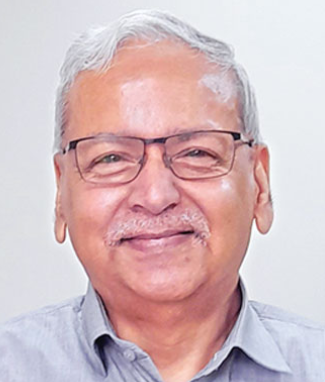
Director of ICCCA, Professor at the Independent University Bangladesh
Saleemul Huq is the Director of the International Centre for Climate Change and Development (ICCCAD) and Professor at the Independent University Bangladesh (IUB) as well as Associate of the International Institute on Environment and Development (IIED) in the United Kingdom. In addition he is the Chair of the Expert Advisory Group for the Climate Vulnerable Forum (CVF) and also Senior Adviser on Locally Led Adaptation with Global Centre on Adaptation (GCA) headquartered in the Netherlands. He is an expert in adaptation to climate change in the most Vulnerable developing countries and has been a lead author of the third, fourth and fifth assessment reports of the Intergovernmental Panel on Climate Change (IPCC)

